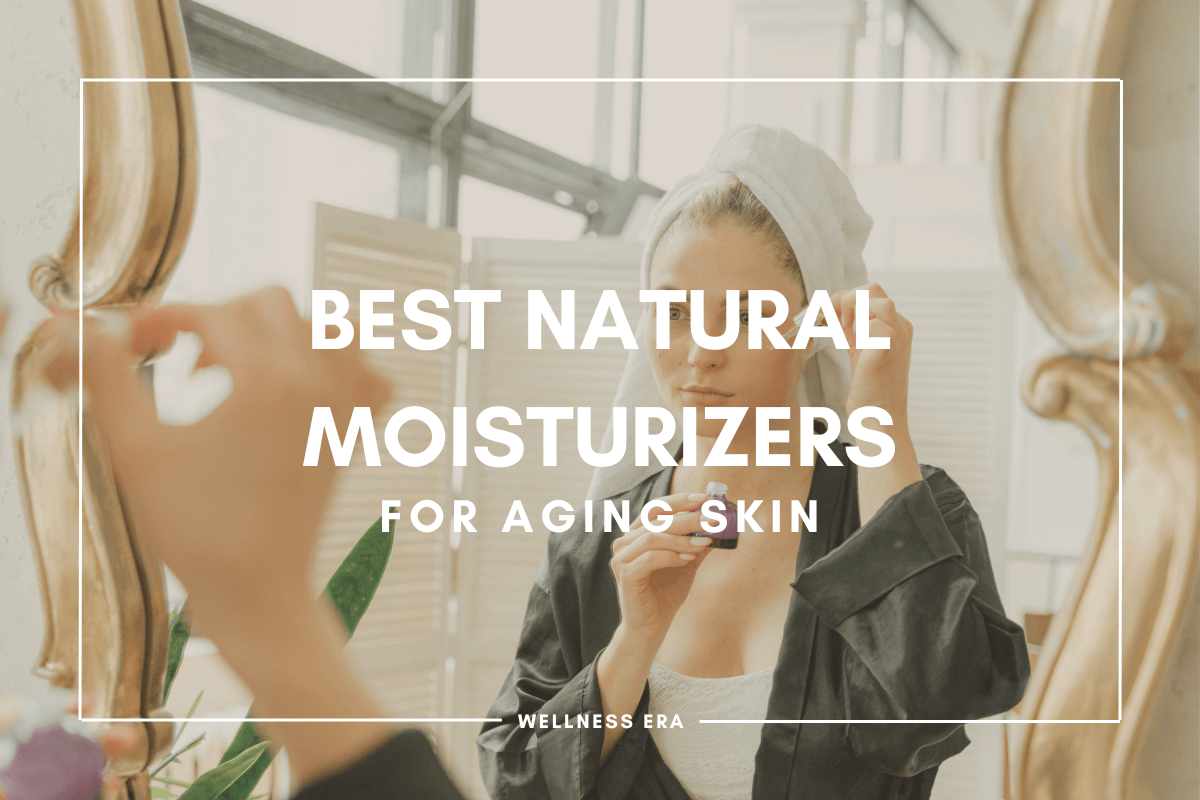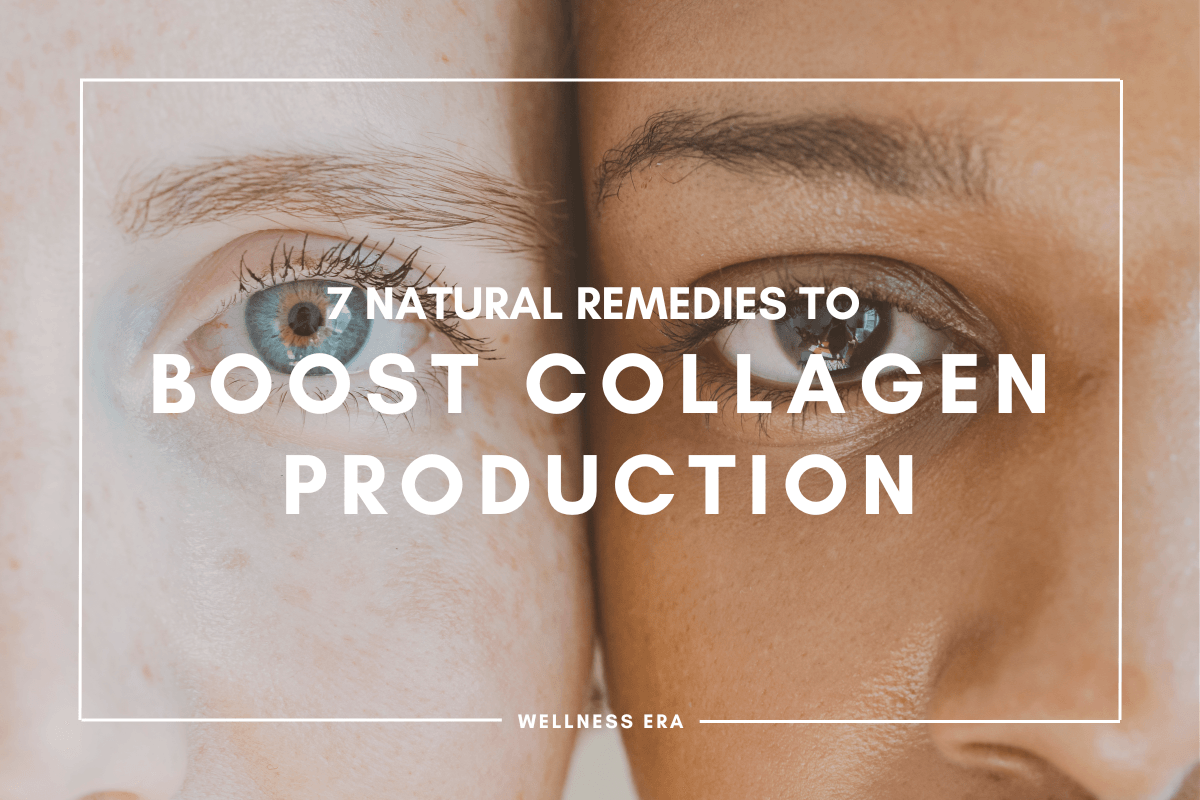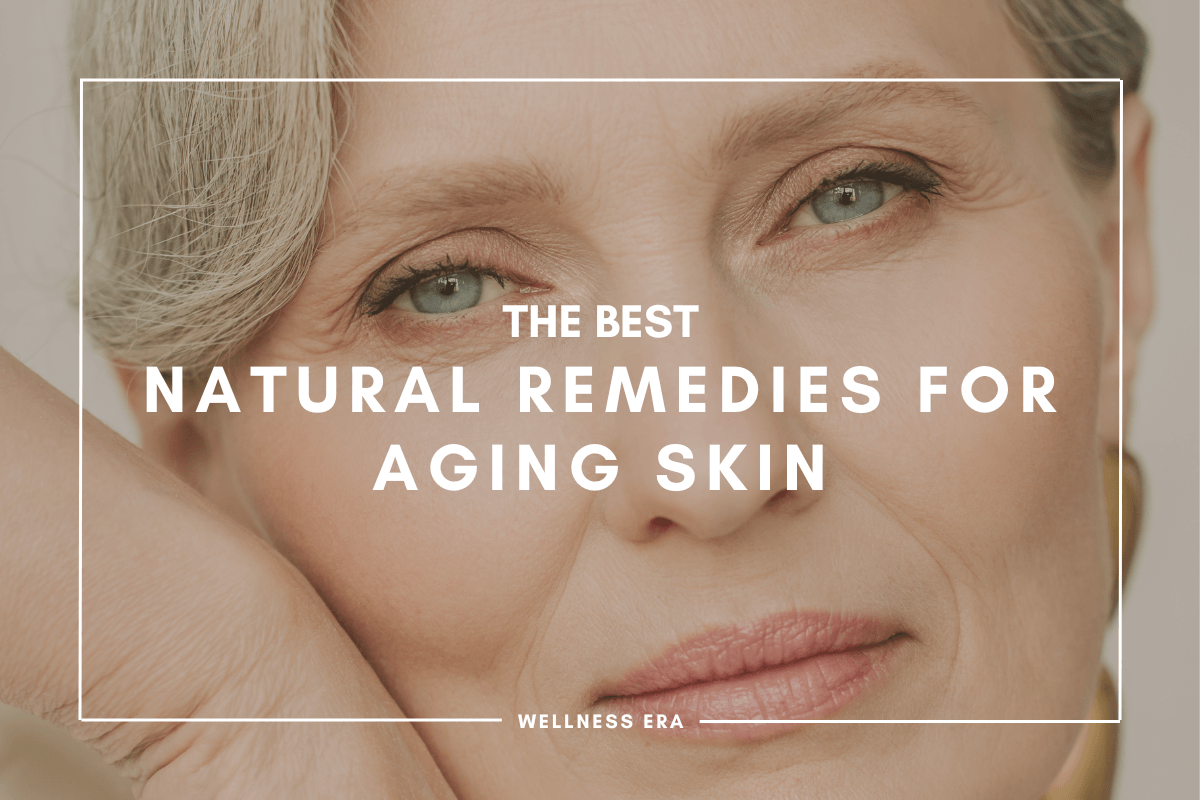Top 10 Natural Anti-Aging Skin Care Tips
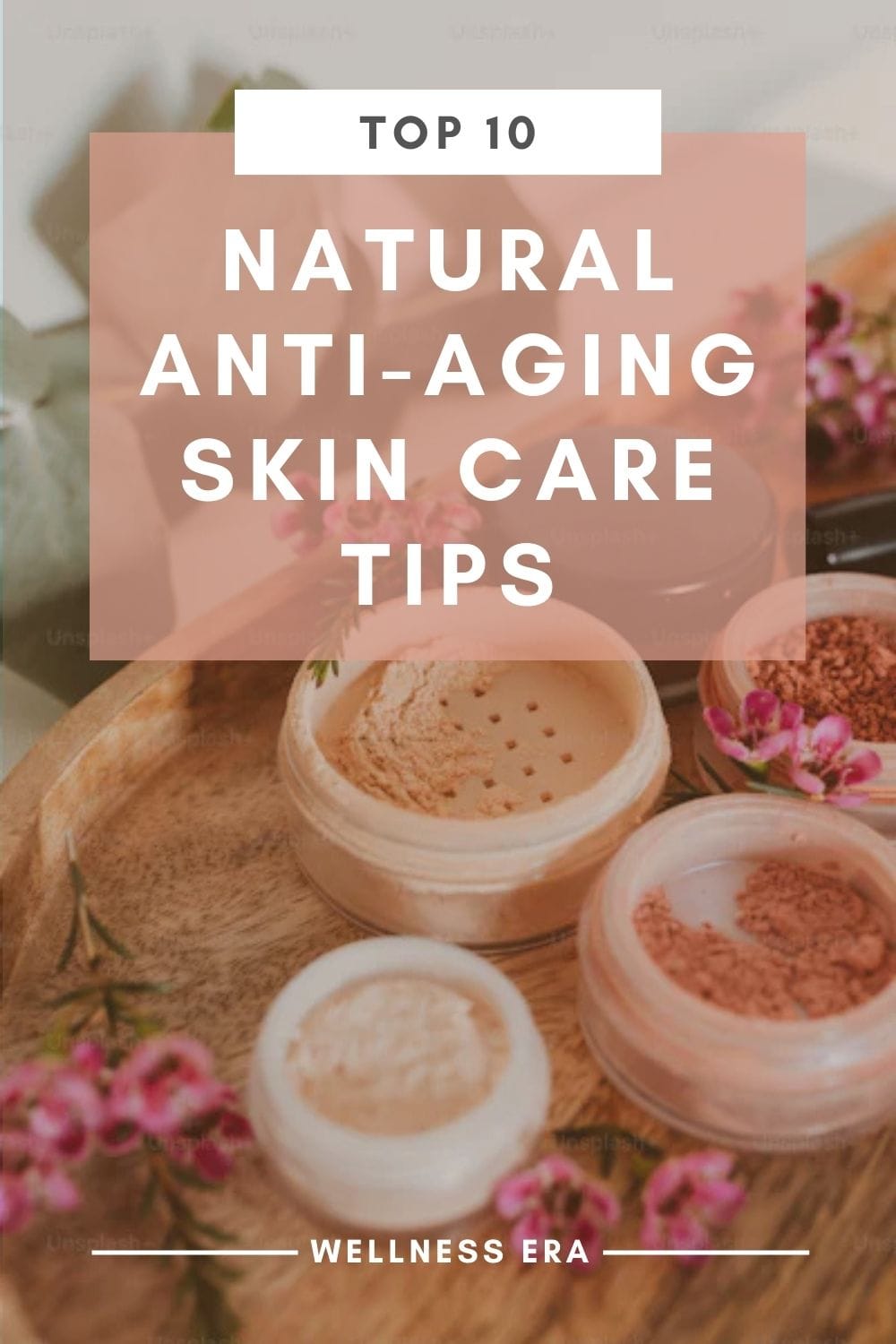
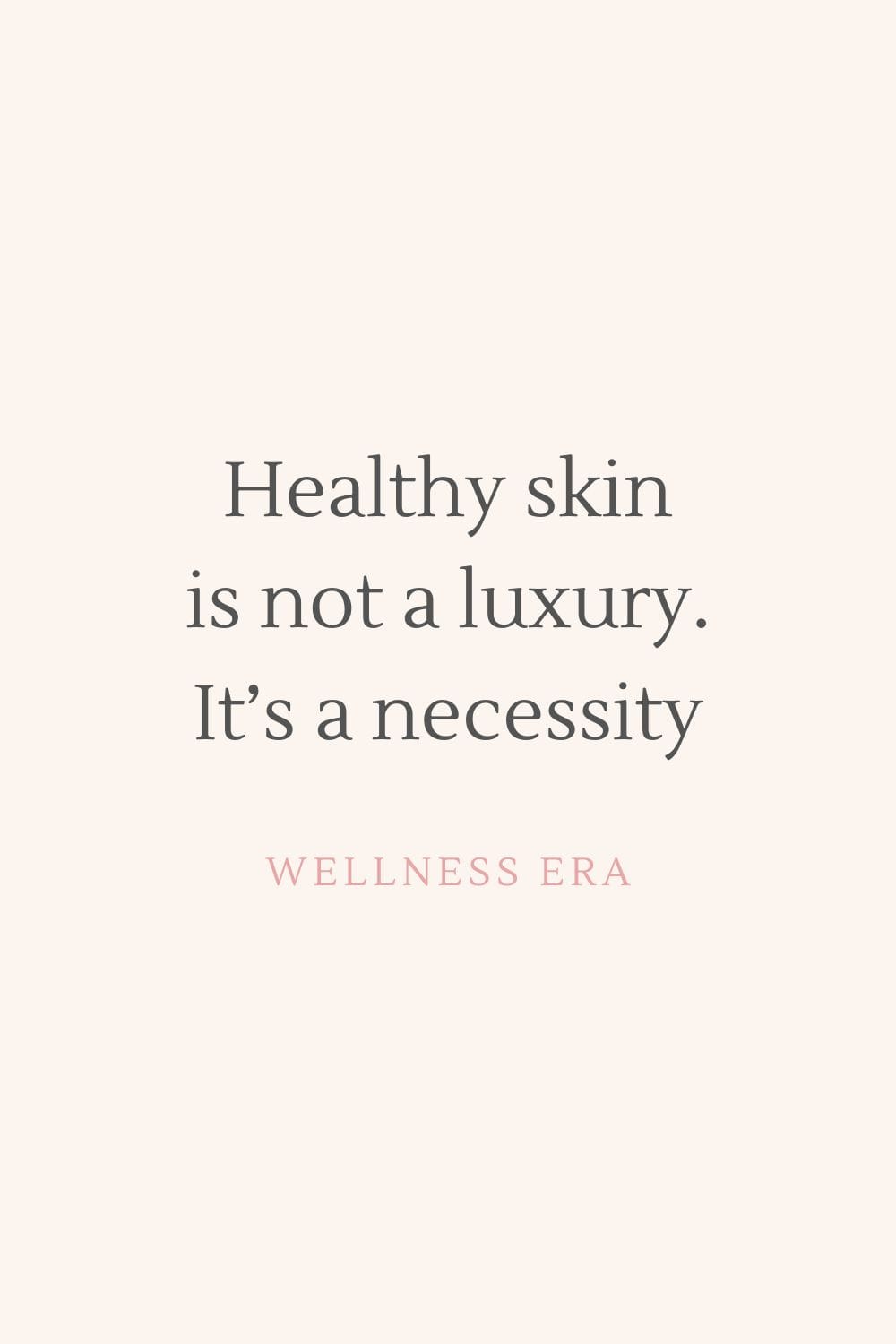
Aging is inevitable, but what if you could slow down the process and keep your skin glowing with simple, natural remedies? Imagine nourishing your skin from the inside out, boosting collagen, and improving elasticity—all without harsh chemicals or invasive treatments. Curious how?
Whether you're just starting to notice fine lines or want to prevent deeper wrinkles from forming, this guide is here to reveal the best natural anti-aging tips. These aren't just surface-level fixes but powerful, science-backed remedies that support your skin's long-term health. Let’s dive into the top 10 natural skincare tips that will help your skin look radiant, youthful, and strong—naturally.
What Causes Skin to Age?
As we age, our skin experiences several internal changes, many of which are influenced by genetics, hormonal shifts, and overall health. These factors contribute to the breakdown of collagen and elastin—the proteins responsible for keeping your skin firm, smooth, and elastic. This loss of elasticity leads to sagging skin, fine lines, and wrinkles (Shanbhag et al., 2019).
Another key factor is decreased cell turnover. In youth, your skin naturally sheds dead cells and produces new ones at a rapid pace. However, with age, this process slows down, resulting in a buildup of dead cells that contribute to dullnessand rough texture (Zouboulis et al., 2021).
In addition to these internal changes, external factors like sun exposure and pollution accelerate skin aging by generating free radicals. These unstable molecules damage collagen and elastin fibers, leading to premature wrinkles and hyperpigmentation (Ganceviciene et al., 2012).
Lastly, hormonal changes and stress also play significant roles in aging skin. As estrogen levels decline, particularly during menopause, the skin loses moisture, resulting in dryness, thinning, and a reduction in sebum production, which leaves the skin more vulnerable to damage (Makrantonaki et al., 2010).
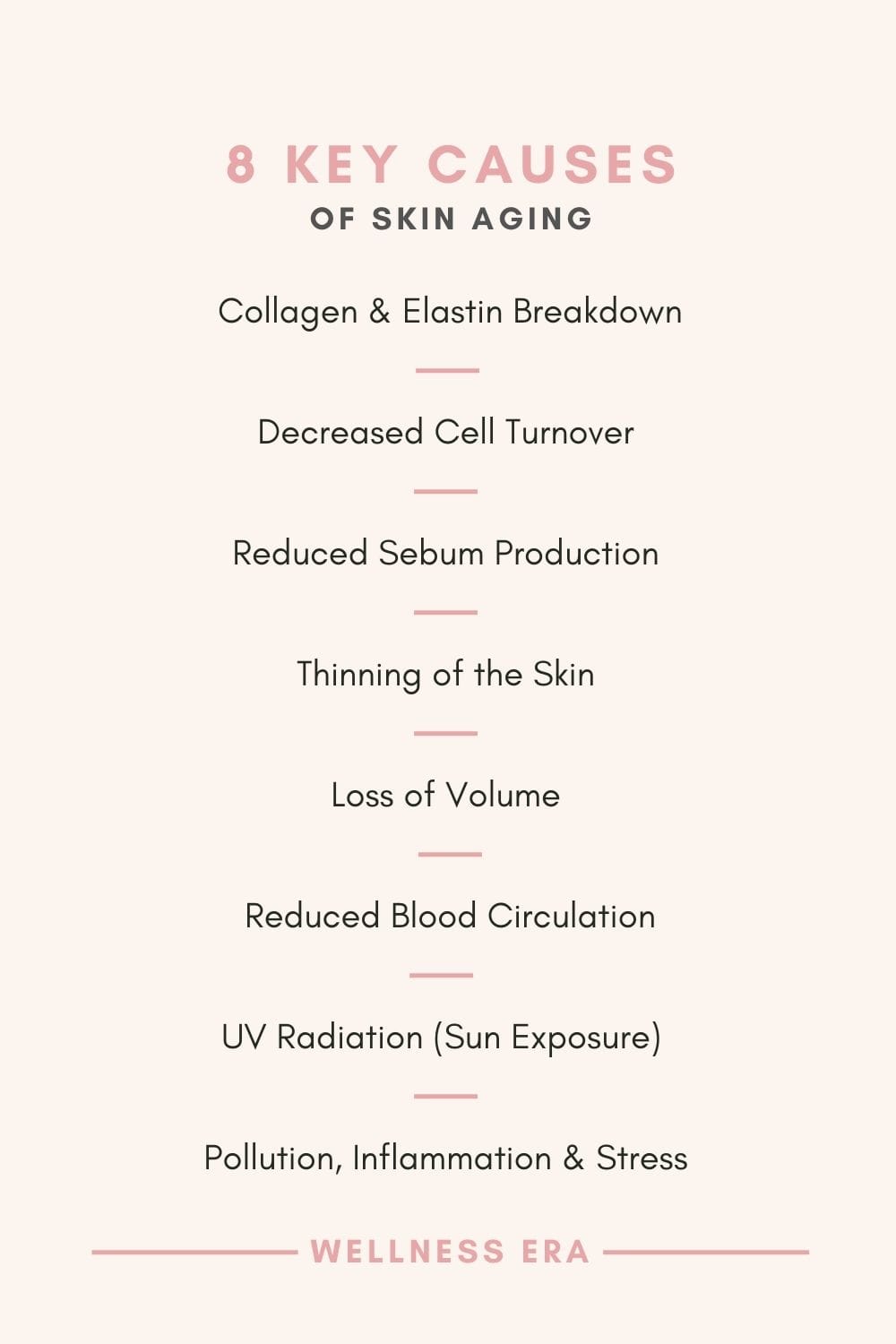
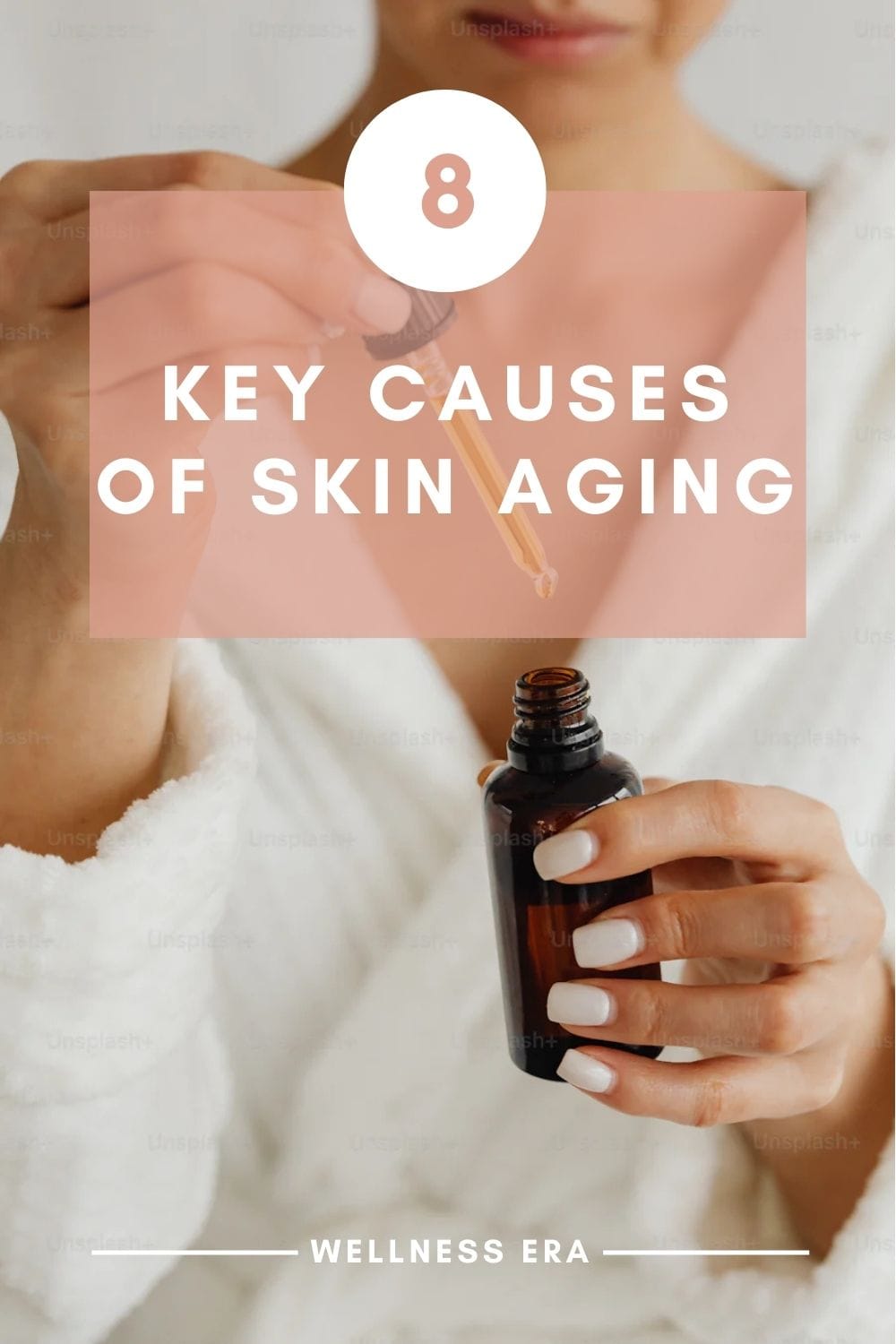
Key causes of skin aging include:
Collagen and Elastin Breakdown
Decreased Cell Turnover
Reduced Sebum Production
Thinning of the Skin
Loss of Volume
Reduced Blood Circulation
UV Radiation (Sun Exposure)
Pollution, Inflammation, and Oxidative Stress
References
Ganceviciene, R., Liakou, A. I., Theodoridis, A., Makrantonaki, E., & Zouboulis, C. C. (2012). Skin anti-aging strategies. Dermato-endocrinology, 4(3), 308-319. (URL: Taylor & Francis Online)
Kohli, I., & Singh, P. (2020). Topical treatments for pigmentation: An overview. Clinical Dermatology, 6(2), 55-62. (URL: EMJ Dermatology)
Makrantonaki, E., Zhao, Z., Suh, H. S., & Zouboulis, C. C. (2010). Gender differences in skin aging. In Dermato-endocrinology (Vol. 2, No. 4, pp. 153-158). (URL: PubMed Central)
Shanbhag, S., Nayak, A., Narayan, R., Nayak, U. Y., & Koteshwara, K. B. (2019). Anti-aging and sunscreen effects of antioxidants: The current status of pharmacological applications. Dermatology and Therapy, 9(2), 241-252. (URL: SpringerLink)
Zouboulis, C. C., Makrantonaki, E., & Fimmel, S. (2021). Aging of the skin: Insights into structure and function changes. Acta Dermatovenerologica, 101(2), 158-167.
Common Issues Linked with Aging Skin
Several visible changes are associated with aging skin, including wrinkles, fine lines, and sagging. Skin also becomes drier as the natural oils diminish, making it prone to dehydration and flakiness (Zouboulis et al., 2021). In addition, aging skin often shows signs of hyperpigmentation, like age spots, which result from years of sun exposure (Kohli & Singh, 2020).
Other concerns include loss of volume due to the depletion of fat beneath the skin, rough texture from a lack of cell turnover, and a general dullness due to decreased circulation (Makrantonaki et al., 2010). Some people also experience broken capillaries and enlarged pores, both of which make the skin appear uneven and older.
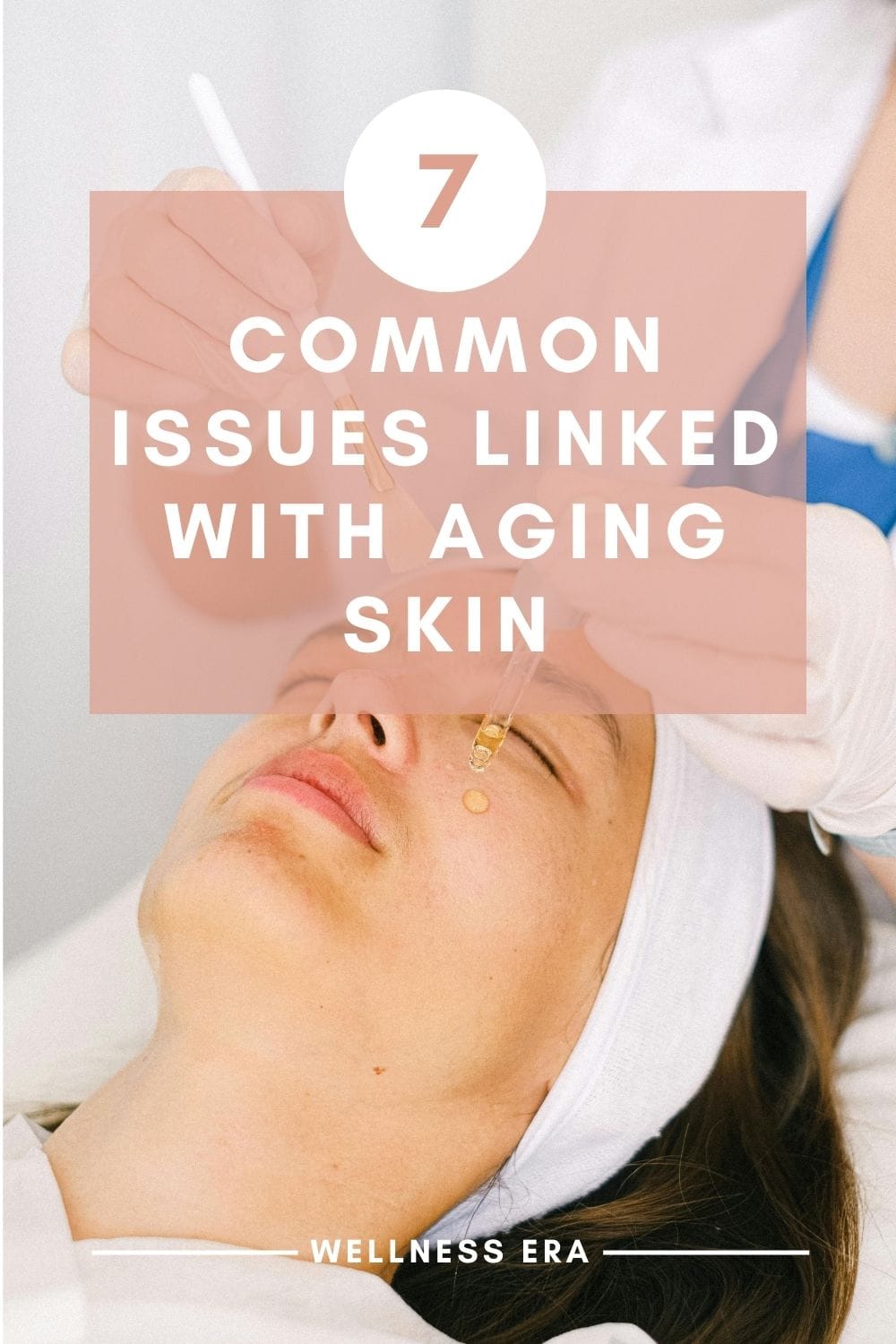
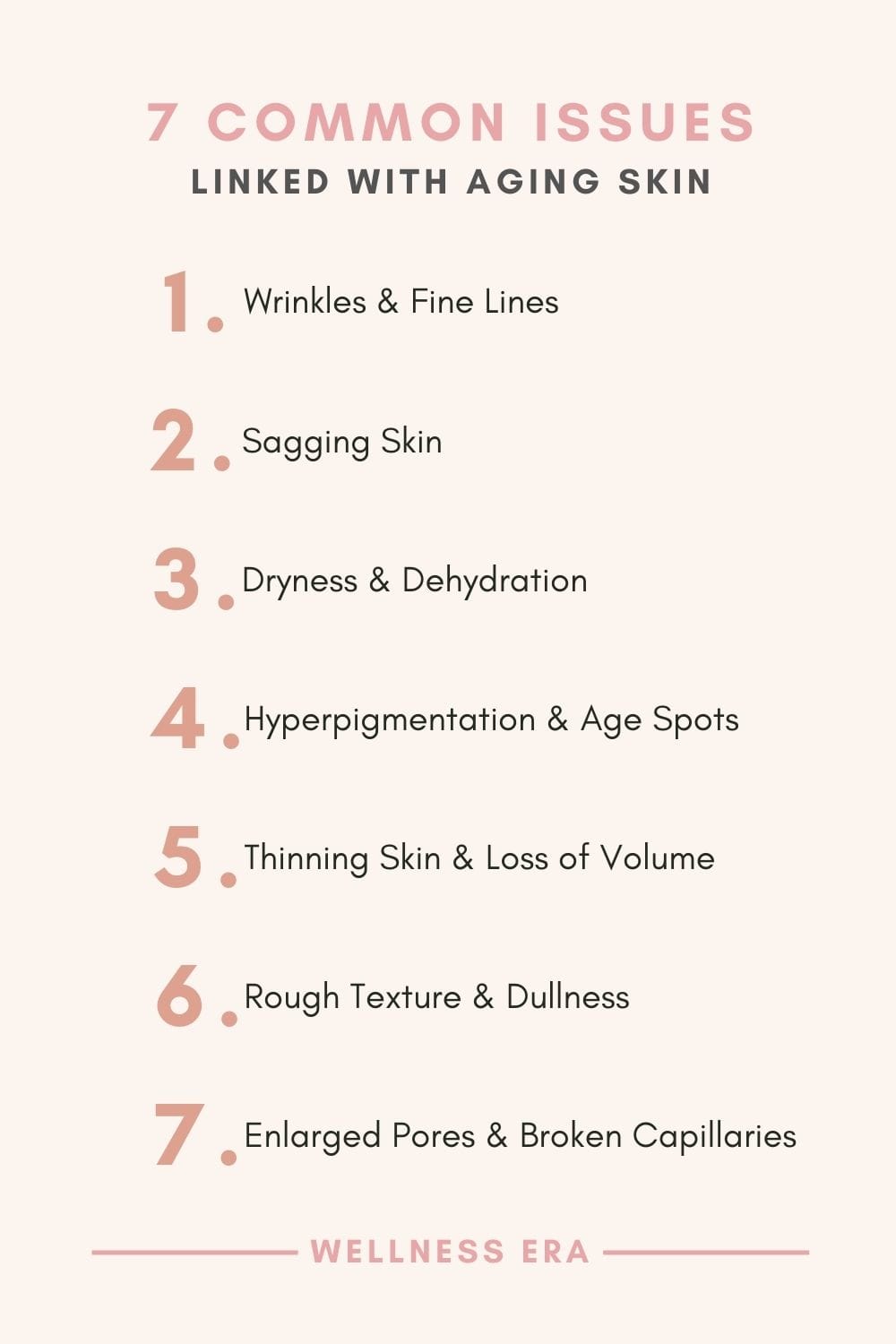
Common signs of aging skin include:
Wrinkles and Fine Lines
Sagging Skin
Dryness and Dehydration
Hyperpigmentation and Age Spots
Thinning Skin and Loss of Volume
Rough Texture and Dullness
Enlarged Pores and Broken Capillaries
Ever wonder what’s really happening beneath the surface of your skin as you age? From slowing collagen production to environmental damage, understanding the key factors behind skin aging is the first step to keeping your skin healthy and glowing. Dive into this next blog post What Are the Best Natural Remedies for Aging Skin? that explaines the aging process of skin more. So you can uncover the science behind why skin changes over time and how you can naturally protect and nourish it!
References
Monteiro, C.A., Cannon, G., Moubarac, J.C., Levy, R.B., Louzada, M.L. and Jaime, P.C., 2018. Ultra-processed foods: what they are and how to identify them. Public Health Nutrition, 22(5), pp.936-941. (URL: Cambridge University Press)
Danby, F.W., 2010. Nutrition and aging skin: sugar and glycation. Clinics in Dermatology, 28(4), pp.409-411. (URL: ResearchGate)
Smith, R.N., Mann, N.J., Braue, A., Mäkeläinen, H. and Varigos, G.A., 2016. A low-glycemic-load diet improves symptoms in acne vulgaris patients: a randomized controlled trial. American Journal of Clinical Nutrition, 86(1), pp.107-115.
Melnik, B.C., 2012. Dietary intervention in acne: Attenuation of increased mTORC1 signaling promoted by Western diet. Dermato-Endocrinology, 4(1), pp.20-32. (URL: Europe PMC)
Why Choose Natural Skin Care for Aging Skin?
When it comes to skincare, natural products provide a gentle and holistic way to care for aging skin. Many conventional skincare products contain harsh chemicals, synthetic fragrances, and preservatives like parabens that can irritate sensitive skin or even accelerate aging over time (Darbre, 2014). On the other hand, natural ingredients like plant extracts, oils, and botanicals are often rich in antioxidants, vitamins, and essential fatty acids, which work to nourish the skin while promoting healthy aging.
One of the key benefits of natural skincare is its ability to stimulate collagen production. Ingredients such as vitamin Cand retinol derived from plants can help boost collagen synthesis, improving skin elasticity and reducing the appearance of fine lines and wrinkles (Shanbhag et al., 2019). Additionally, natural ingredients tend to be less irritating for sensitive or mature skin types, reducing inflammation and redness, which are common concerns as skin ages.
Not only are natural products better for your skin, but they’re also environmentally friendly. Many brands that focus on natural skincare prioritize sustainability by using organic ingredients, cruelty-free testing, and eco-friendly packaging. Choosing these products not only benefits your skin but also aligns with a lifestyle that’s mindful of the environment.
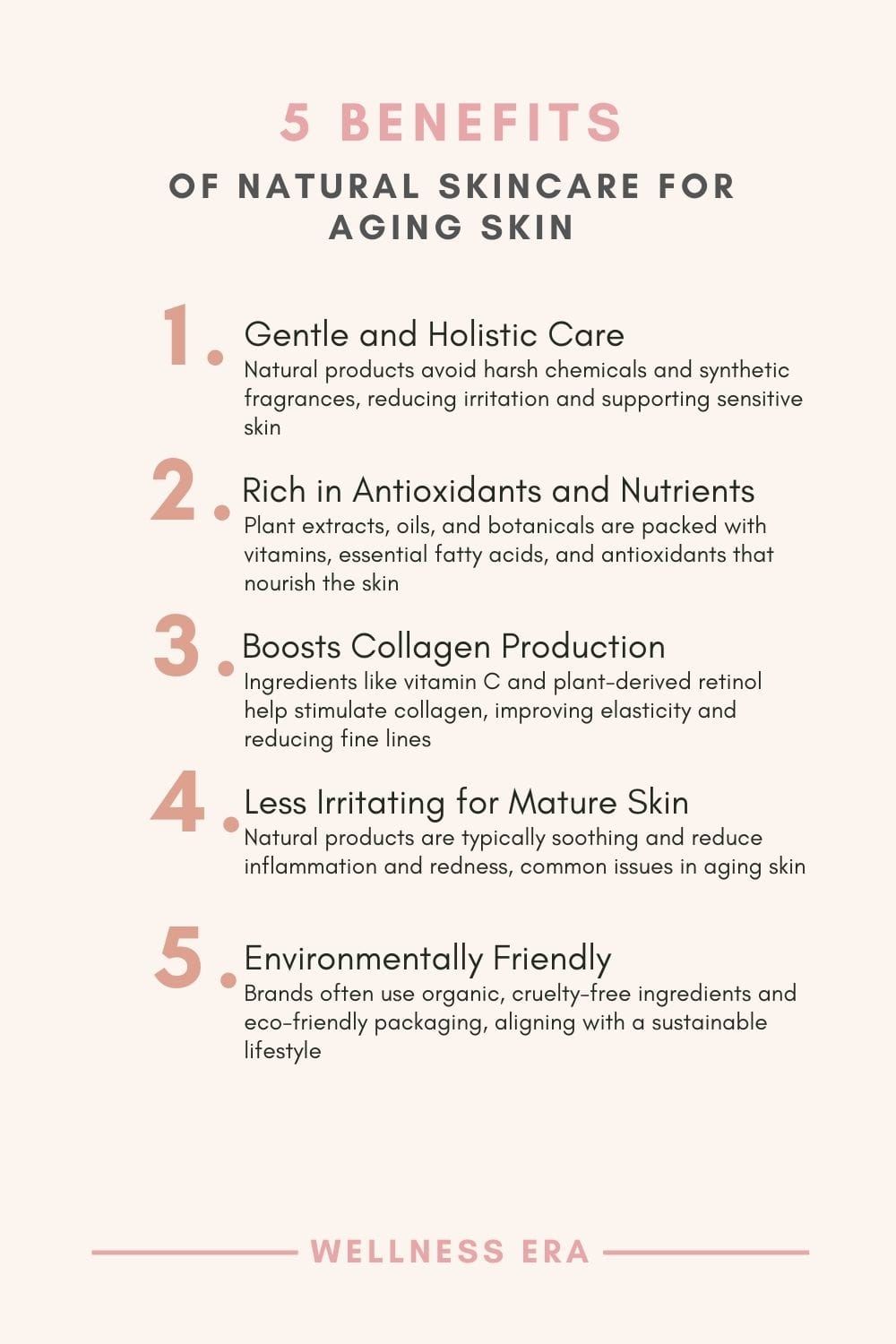
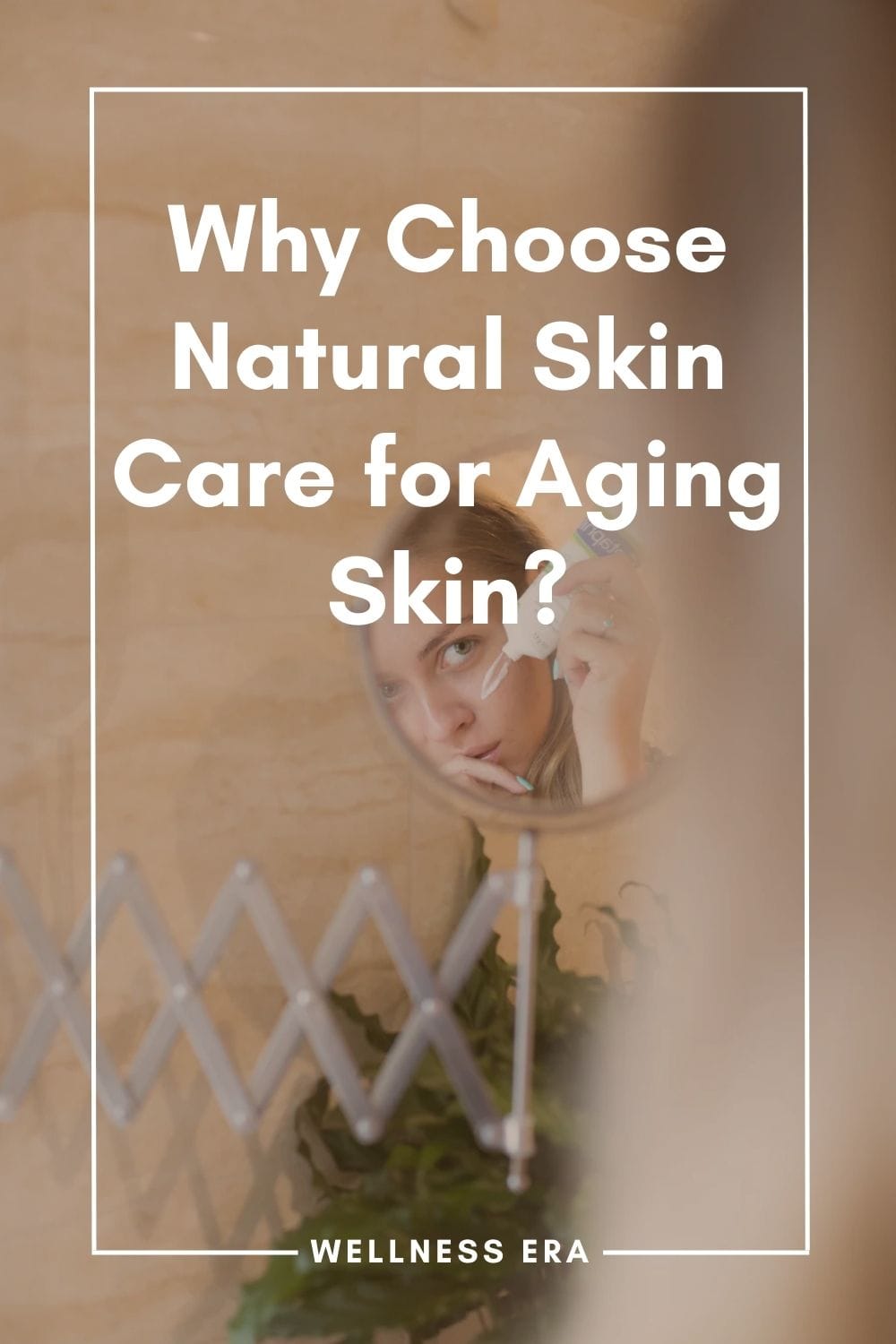
New to natural skin care? Read our Complete Guide to Natural Skin Care for Beginners, to understand exactly why and how to switch your skin care routine to one that is naturally caring for you aging skin, instead of damaging it with loaded chemicals!
References
Darbre, P. D. (2014). Endocrine disruptors and obesity. Current Obesity Reports, 3(1), 54-61. (URL: Springer Link)
Shanbhag, S., Nayak, A., Narayan, R., Nayak, U. Y., & Koteshwara, K. B. (2019). Anti-aging and sunscreen effects of antioxidants: The current status of pharmacological applications. Dermatology and Therapy, 9(2), 241-252. (URL: Europe PMC)
Top 10 Natural Anti-Aging Skin Care Tips
Simple, natural remedies can make all the difference in maintaining your skin's youthful glow. These practices not only address skin health but also improve overall well-being, offering holistic benefits that go beyond surface-level fixes.
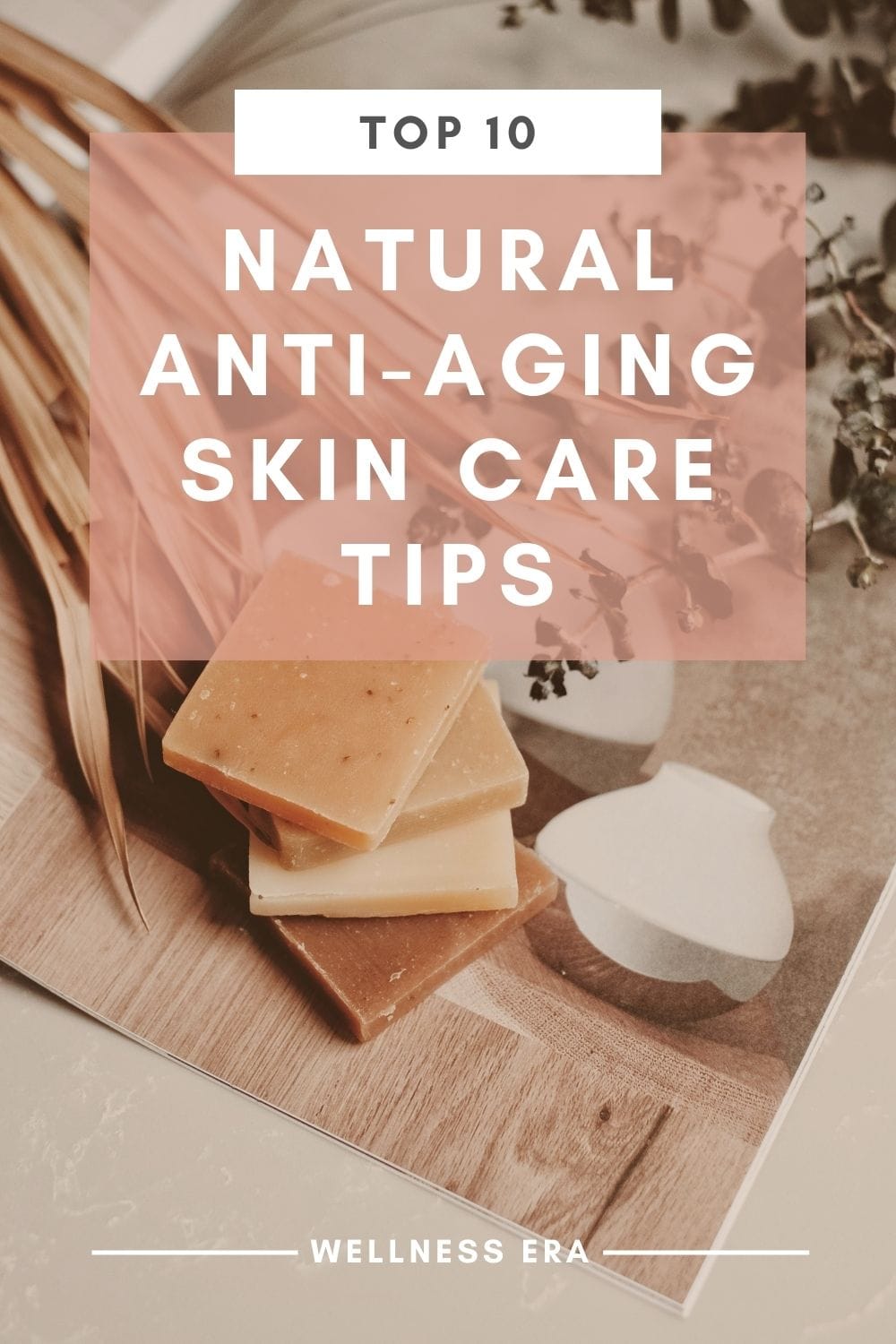
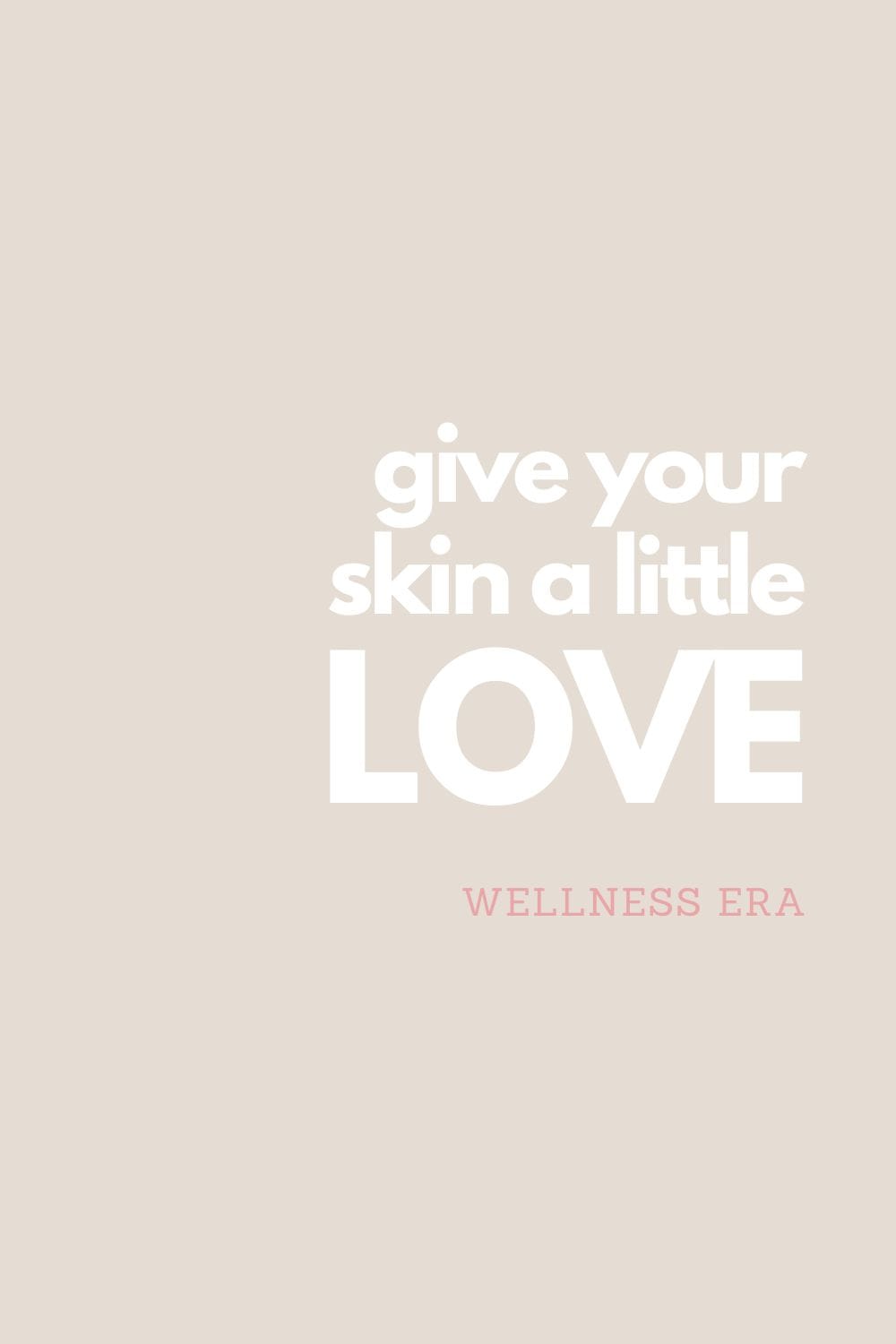
Let’s explore the top 10 science-backed natural anti-aging skincare tips that will nourish your skin and help you age gracefully.
1. Eat Vitamin C-Rich Foods to Boost Collagen
Vitamin C is a powerhouse nutrient when it comes to promoting collagen production, one of the key proteins responsible for keeping your skin firm and elastic. Collagen provides structure to your skin, and its production decreases with age, leading to wrinkles and sagging. Fortunately, vitamin C can help stimulate collagen synthesis by supporting the enzymes that convert proline and lysine into the stable collagen structure (Pullar, Carr & Vissers, 2017).
This essential vitamin acts as a cofactor in collagen formation, ensuring that your skin maintains its strength and resilience. It also protects against oxidative damage by neutralizing free radicals, which can break down collagen fibers over time (Shanbhag et al., 2019).
How to Incorporate Vitamin C into Your Diet:
Incorporate vitamin C-rich foods such as citrus fruits, berries, kiwi, and bell peppers into your daily meals. For added benefits, combine them with collagen-rich foods or supplements like bone broth, which contains amino acids essential for skin repair.
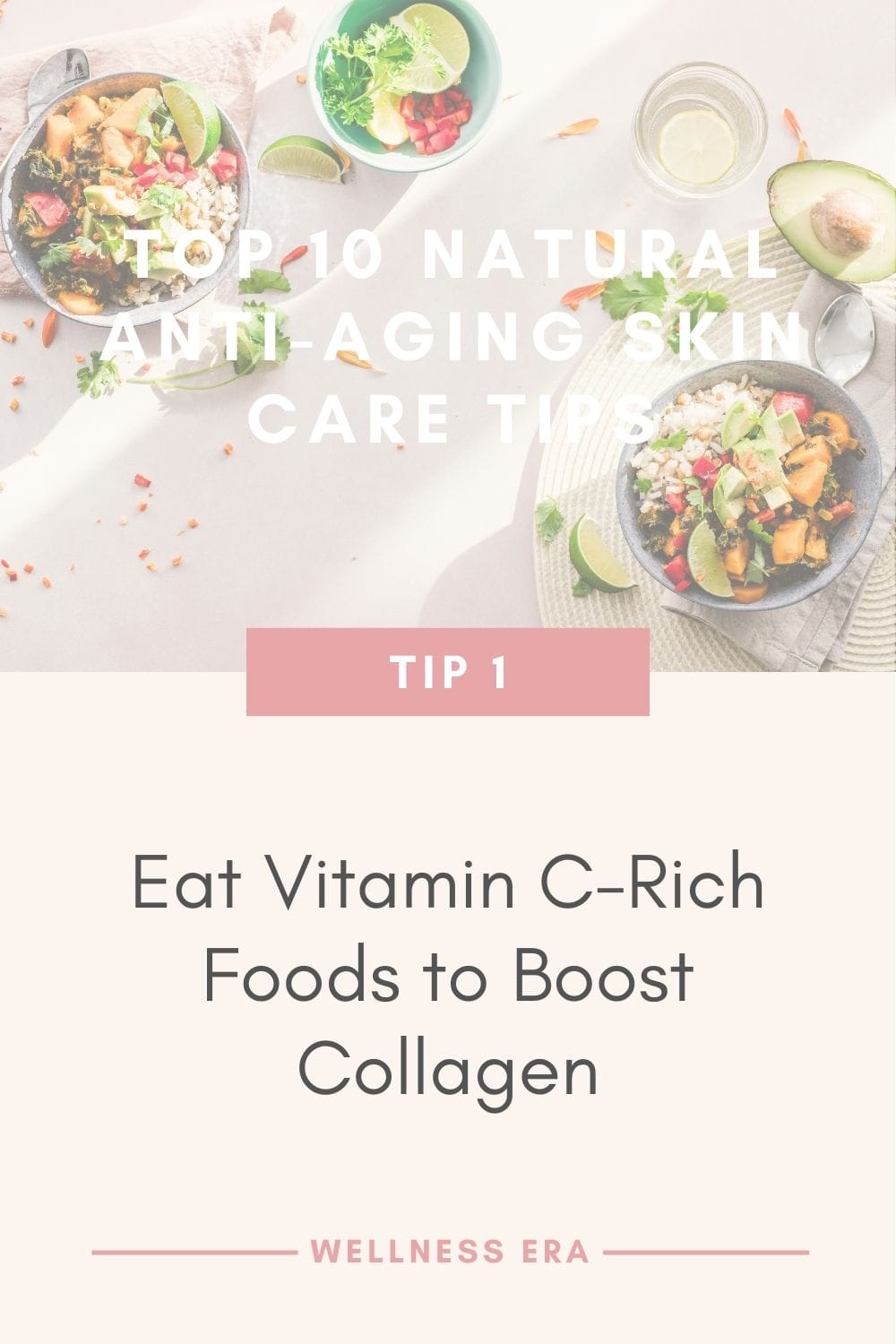
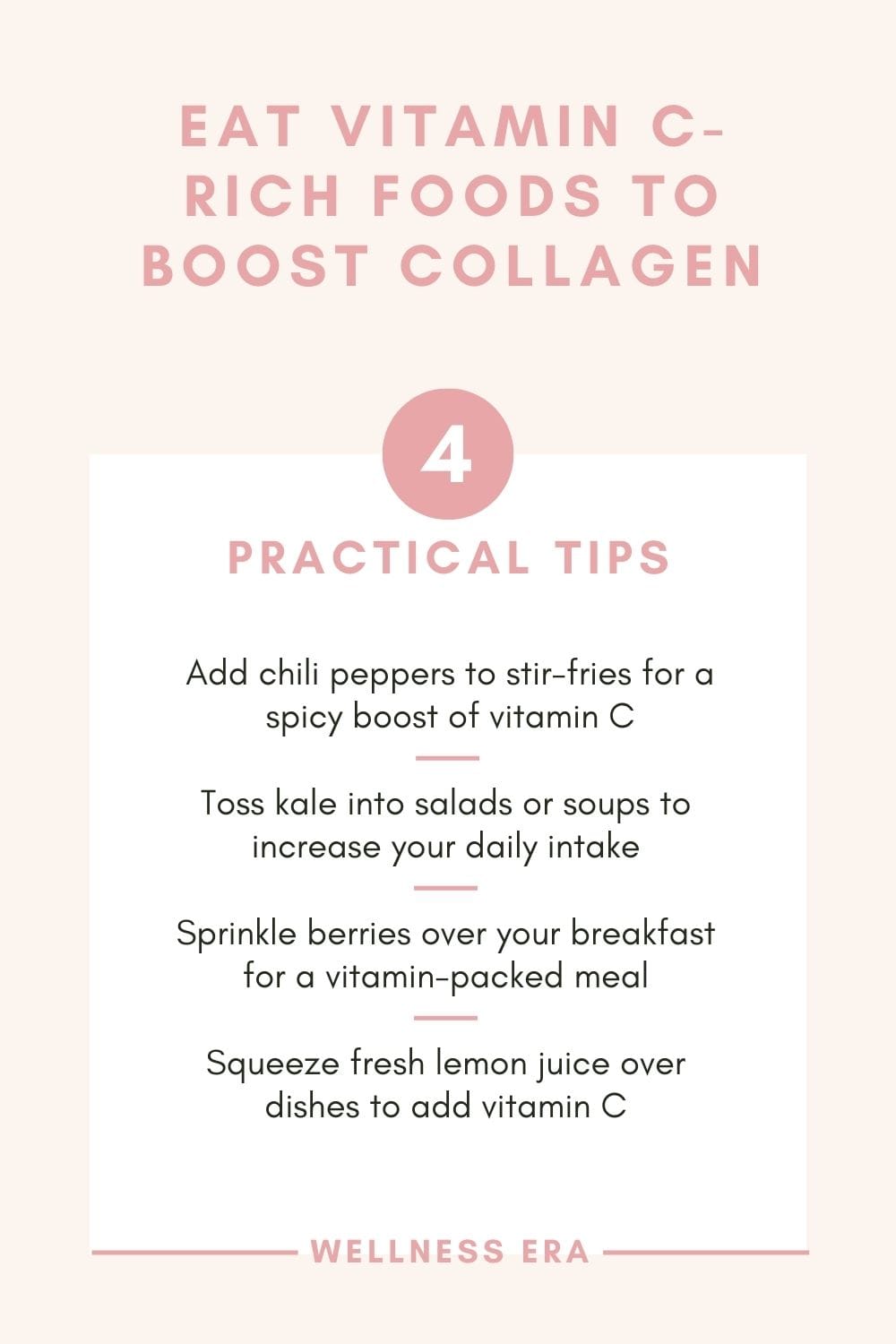
Practical Tips:
Add chili peppers to stir-fries for a spicy boost of vitamin C.
Toss kale into salads or soups to increase your daily intake.
Sprinkle berries over your breakfast or blend them into smoothies for a vitamin-packed meal.
Squeeze fresh lemon juice over dishes for an easy, natural way to incorporate more vitamin C.
By making small changes to your diet, you can naturally boost collagen production and keep your skin looking firm and youthful. Learn more about eating for wellness in: Whole Food Nutrition: The Science Behind Eating for Wellness
2. Exfoliate Twice Per Week for Brighter Skin
As we age, the natural rate of skin cell turnover slows down, which can lead to a buildup of dead skin cells on the surface of the skin. This accumulation contributes to a dull, uneven complexion and rough texture. Exfoliation is crucial for aging skin as it helps remove these dead skin cells, revealing fresh, healthier skin underneath and promoting a more radiant, youthful appearance (Kong & Park, 2019).
Exfoliation not only improves skin texture but also stimulates collagen production, which is essential for reducing the appearance of fine lines and wrinkles (Vespa et al., 2015). Collagen is a protein that maintains skin’s firmness and elasticity, both of which decrease with age.
Natural exfoliants, such as papaya enzymes and sugar scrubs, offer a gentler way to exfoliate aging skin. Papaya contains papain, an enzyme that breaks down proteins in dead skin cells, allowing for natural and non-abrasive exfoliation (Monteiro et al., 2018). Additionally, sugar scrubs not only remove dead skin cells but also contain natural glycolic acid, which helps brighten the skin and improve texture without causing irritation (Draelos, 2012).
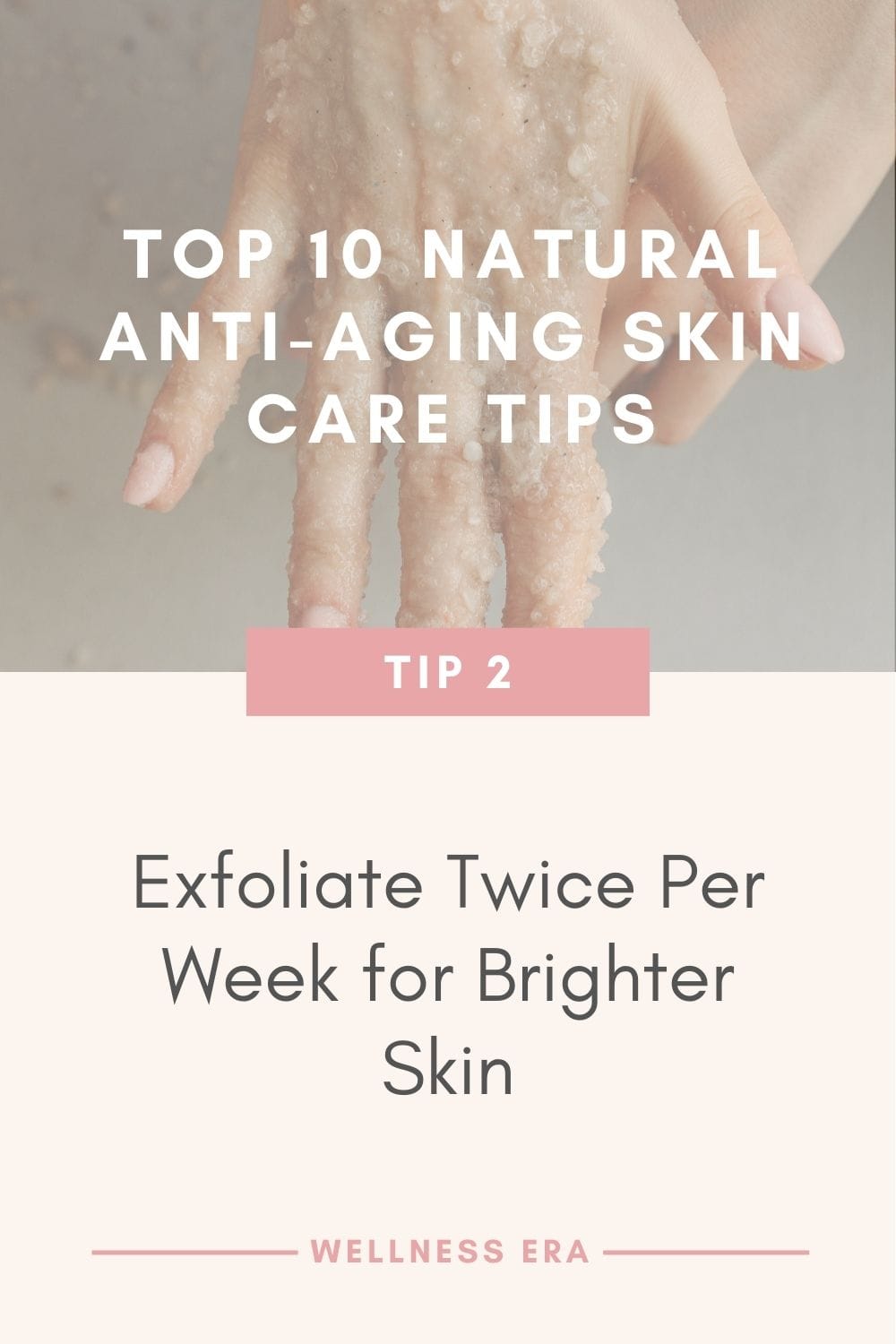
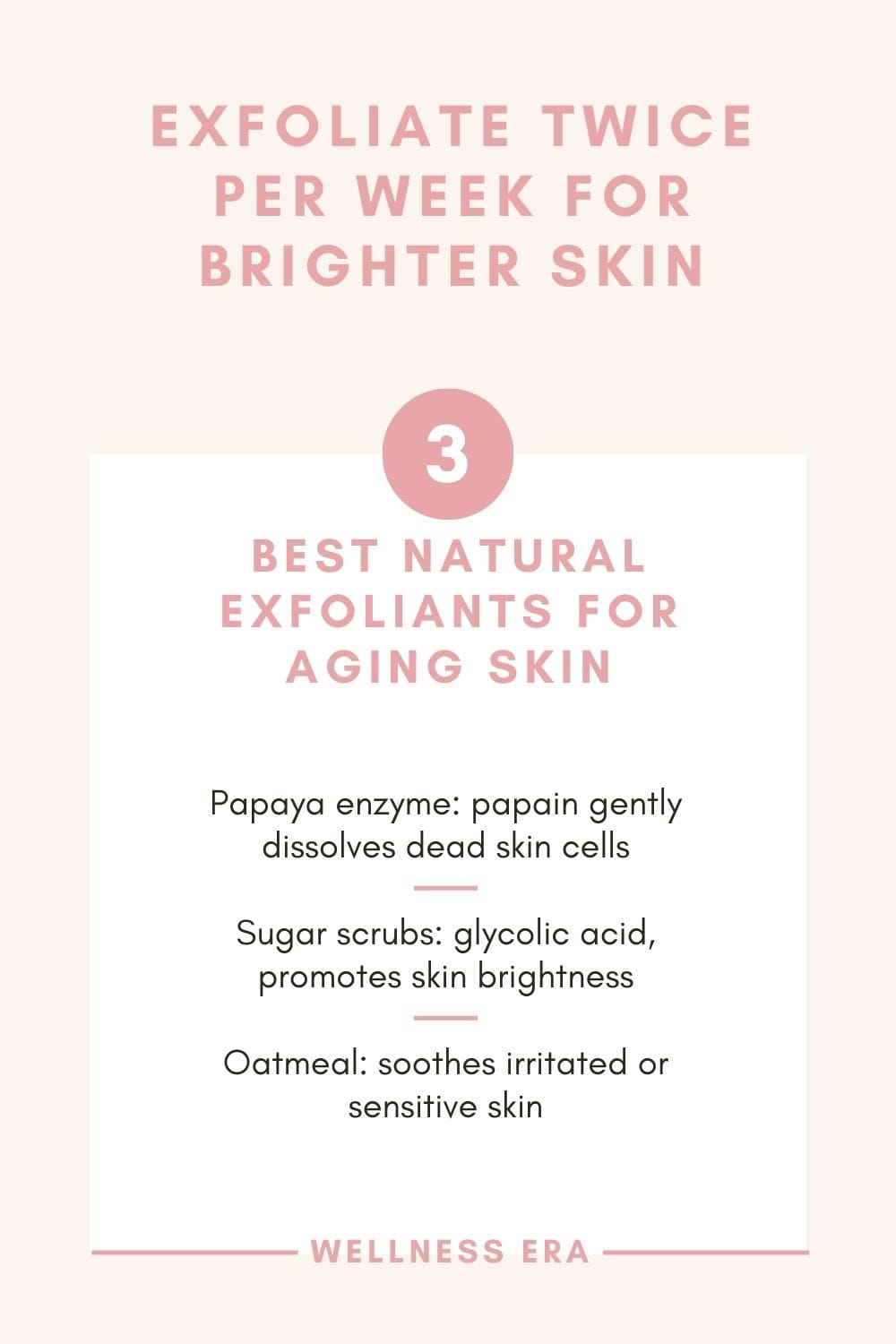
Practical Tip: Choose gentle, natural exfoliants and exfoliate no more than twice weekly. Over-exfoliating can compromise the skin’s barrier function, leading to irritation and dryness. Always follow exfoliation with a hydrating moisturizer to protect newly revealed skin.
Best Natural Exfoliants for Aging Skin:
Papaya enzyme: Contains papain, which gently dissolves dead skin cells (Monteiro et al., 2018).
Sugar scrubs: Provide natural exfoliation while delivering glycolic acid, promoting skin brightness (Draelos, 2012).
Oatmeal: Gently exfoliates while soothing irritated or sensitive skin (Kong & Park, 2019).
Looking to refresh your skin and reveal that natural glow? Exfoliation is the key to boosting cell turnover and keeping your complexion smooth, bright, and youthful. With gentle, natural exfoliants like papaya, honey, and oatmeal, you can clear away dull, dead skin cells without irritation. Learn more about it in our blog post: Boost Cell Turnover Naturally: Exfoliants for Smoother, Brighter Skin and let your skin shine!
3. Moisturize with Natural Oils for Hydrated Skin
Hydration is key to maintaining the elasticity and suppleness of aging skin. As we age, the skin produces less sebum, the natural oil that helps retain moisture and keep the skin barrier intact. This reduction in sebum leads to drier skin, making it more prone to wrinkles and fine lines (Purnamawati et al., 2017). Moisturizing with natural oils rich in essential fatty acids and antioxidants helps replenish this lost moisture, improve skin elasticity, and strengthen the skin’s barrier.
Jojoba oil is particularly effective for aging skin because it closely mimics the skin’s natural sebum, helping to balance oil production and maintain hydration. It also contains vitamin E, which has been shown to have antioxidant properties that protect the skin from oxidative stress and free radical damage (Lin et al., 2005). Similarly, rosehip oil is a rich source of vitamin A (retinoic acid) and vitamin C, both of which are known to boost collagen production, reduce hyperpigmentation, and improve skin elasticity (Faria-Silva et al., 2020).
Argan oil, often called "liquid gold," is packed with essential fatty acids, vitamin E, and antioxidants. Research shows that it helps to restore skin barrier function and improves skin hydration and elasticity, making it a powerful anti-aging oil (Boucetta et al., 2014).
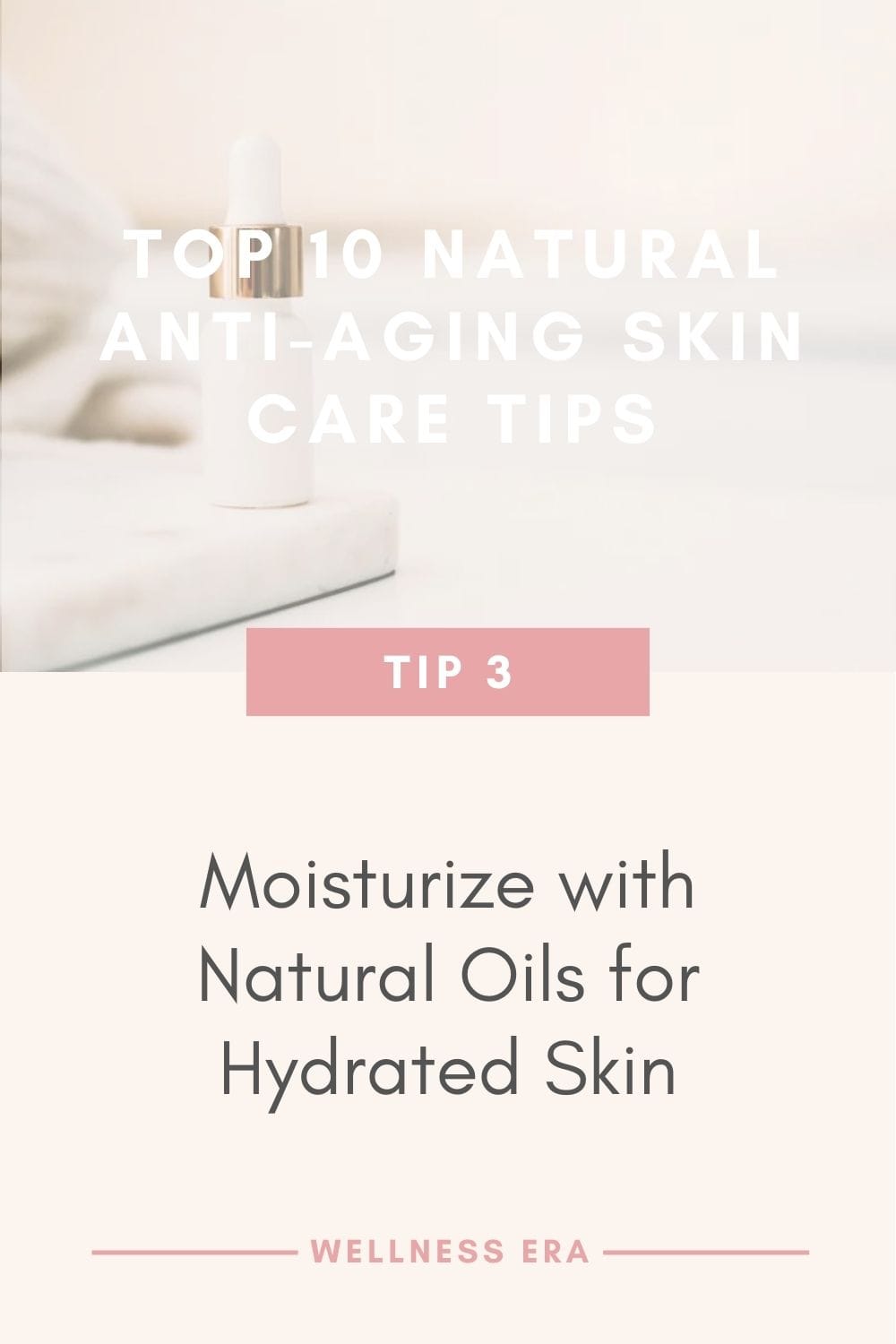
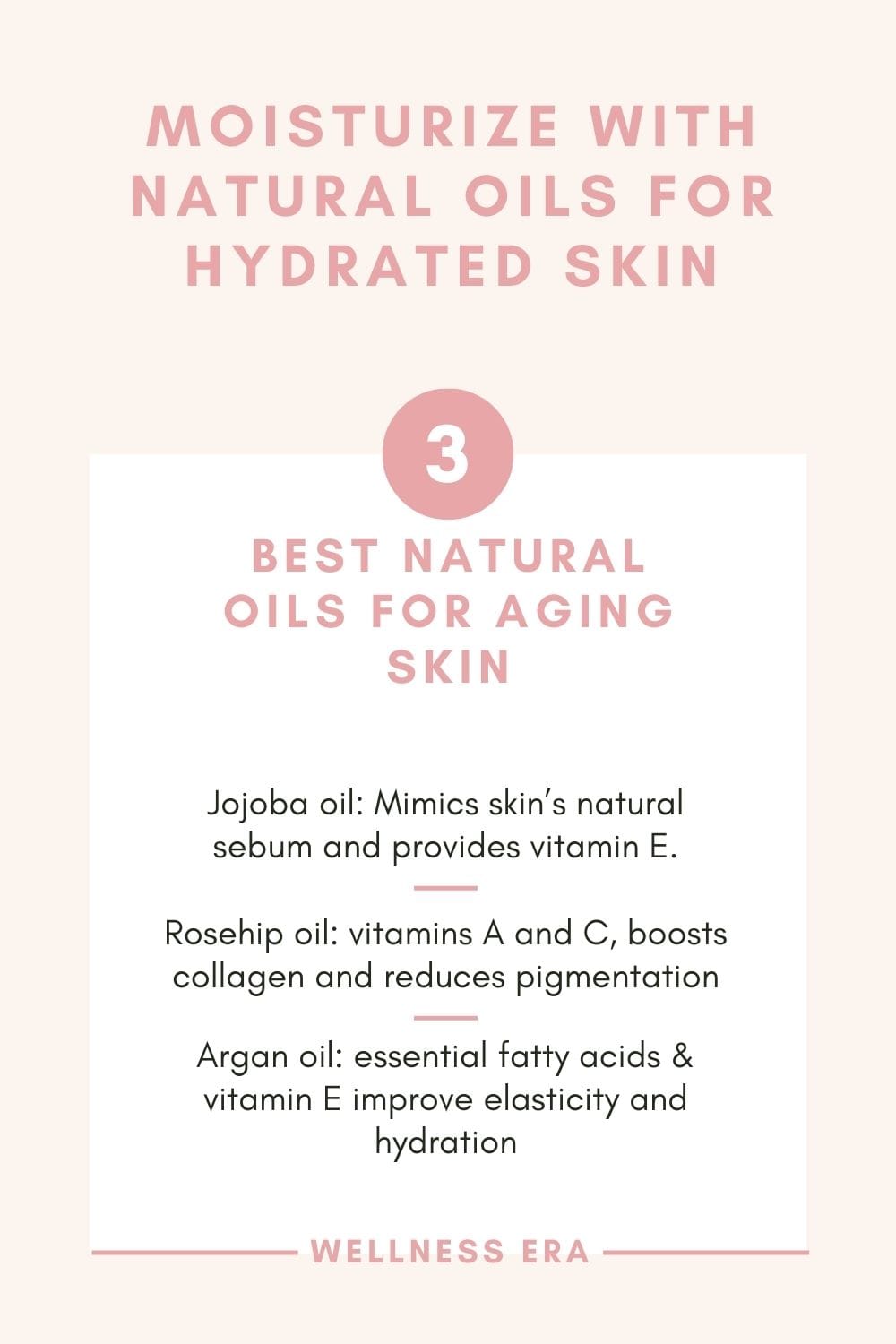
Practical Tip: Apply natural oils after cleansing, while the skin is still slightly damp, to lock in moisture. You can also blend a few drops of your preferred oil into your regular moisturizer for deeper hydration.
Best Natural Oils for Aging Skin:
Jojoba oil: Mimics skin’s natural sebum and provides vitamin E to combat free radicals (Lin et al., 2005).
Rosehip oil: Rich in vitamins A and C, it boosts collagen production and reduces pigmentation (Faria-Silva et al., 2020).
Argan oil: Contains essential fatty acids and vitamin E to improve skin elasticity and hydration (Boucetta et al., 2014).
Natural oils are one way to keep your aging skin moisturized while nourishing it with vitamins and antioxidants. There are plenty of ways to keep your skin plump and radiant. Explore more in this guide on how to moisturize your skin naturallyand give your skin the care it deserves!
4. Eat Antioxidant-Rich Foods to Fight Free Radicals
As we age, our skin becomes increasingly susceptible to damage from free radicals, unstable molecules generated by environmental factors like UV radiation, pollution, and smoking. Free radicals cause oxidative stress by stealing electrons from healthy skin cells, leading to the breakdown of essential proteins like collagen and elastin, which are responsible for maintaining skin structure and firmness (Ganceviciene et al., 2012). This process accelerates the development of wrinkles, sagging, and other visible signs of aging.
Antioxidants are natural compounds that neutralize free radicals by donating electrons, preventing them from causing cellular damage. Incorporating antioxidant-rich foods into your diet helps protect the skin from oxidative stress, slows down aging, and supports collagen production. Antioxidants like vitamin C, vitamin E, and polyphenols are particularly effective in combating free radicals and promoting healthy, youthful skin (Packer & Valacchi, 2002).
Best Foods for Antioxidants:
Berries (blueberries, strawberries): Rich in vitamin C and anthocyanins, berries protect the skin from free radical damage and promote collagen synthesis.
Dark Leafy Greens (spinach, kale): Packed with vitamins A, C, and E, these greens help protect skin cells from oxidative damage and support skin repair.
Nuts and Seeds (almonds, walnuts, flaxseeds): High in vitamin E, they act as powerful antioxidants, shielding the skin from UV damage and promoting hydration.
Dark Chocolate (70% cocoa or higher): Contains flavonoids, which enhance skin hydration, improve blood flow, and protect against UV damage (Darand & Nikfar, 2016).
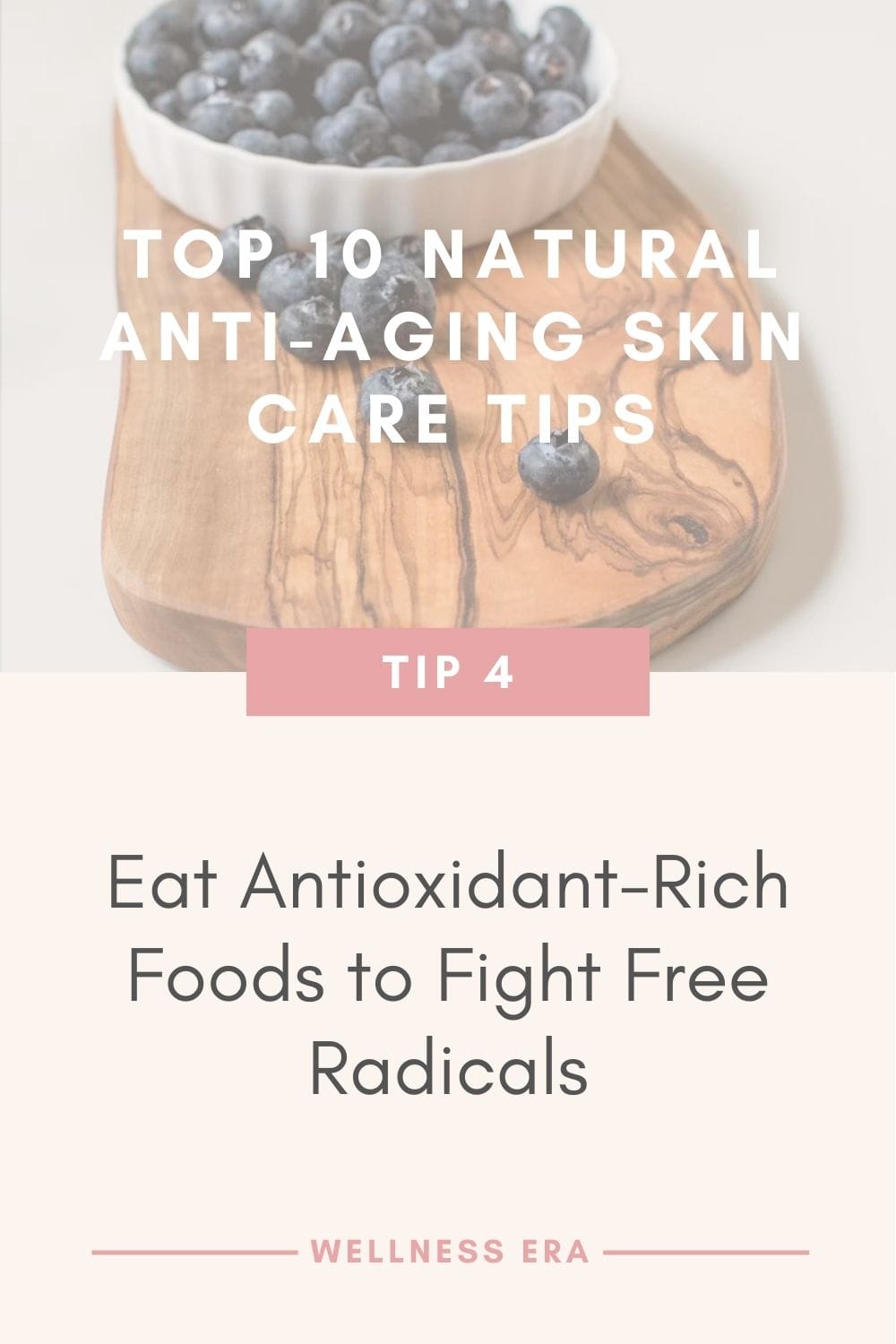
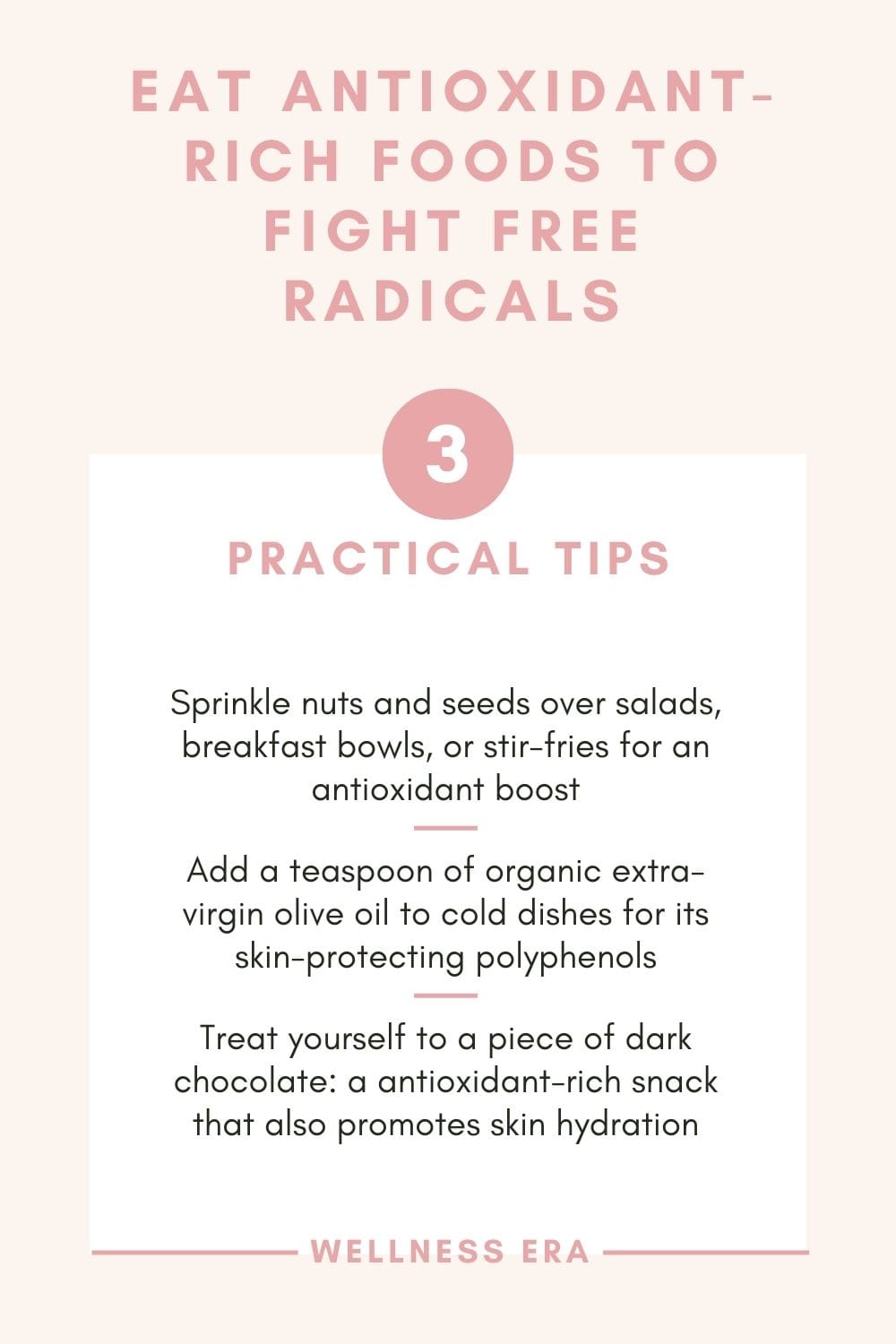
Practical Tips for Incorporating Antioxidants into Your Diet:
Sprinkle nuts and seeds over salads, breakfast bowls, or stir-fries for an antioxidant boost.
Add a teaspoon of organic extra-virgin olive oil to cold dishes like salads or quinoa bowls for its skin-protecting polyphenols.
Treat yourself to a piece of dark chocolate (70% cocoa or more) for a delicious, antioxidant-rich snack that also promotes skin hydration.
Want to dive deeper into how antioxidants keep your skin youthful and glowing? Check out this blog post Defend your skin: fighting free radicals with the power of antioxidants!
5. Facial Massage to Stimulate Blood Circulation
As we age, our skin’s blood circulation tends to slow down, which impacts the skin's ability to receive oxygen and nutrients essential for repair and regeneration. Poor circulation can contribute to dullness, loss of elasticity, and slower healing. By stimulating blood flow, you can enhance skin health, promoting a radiant, youthful glow (Zhao et al., 2020).
Facial massage is a simple yet effective technique to improve circulation and promote the skin’s elasticity. Regular facial massages increase oxygen delivery to the skin cells, helping them function optimally and encouraging collagen production. Increased circulation can also help reduce puffiness and improve lymphatic drainage, leading to a firmer, more sculpted appearance (Dayan, 2017).
Benefits of Facial Massage for Aging Skin:
Improves Skin Elasticity: Regular massage stimulates collagen production, helping the skin retain its firmness and resilience.
Reduces Puffiness: By promoting lymphatic drainage, facial massages help reduce fluid retention and puffiness, particularly around the eyes.
Promotes a Healthy Glow: Enhanced blood circulation brings oxygen and nutrients to the skin, boosting radiance and improving overall skin tone.
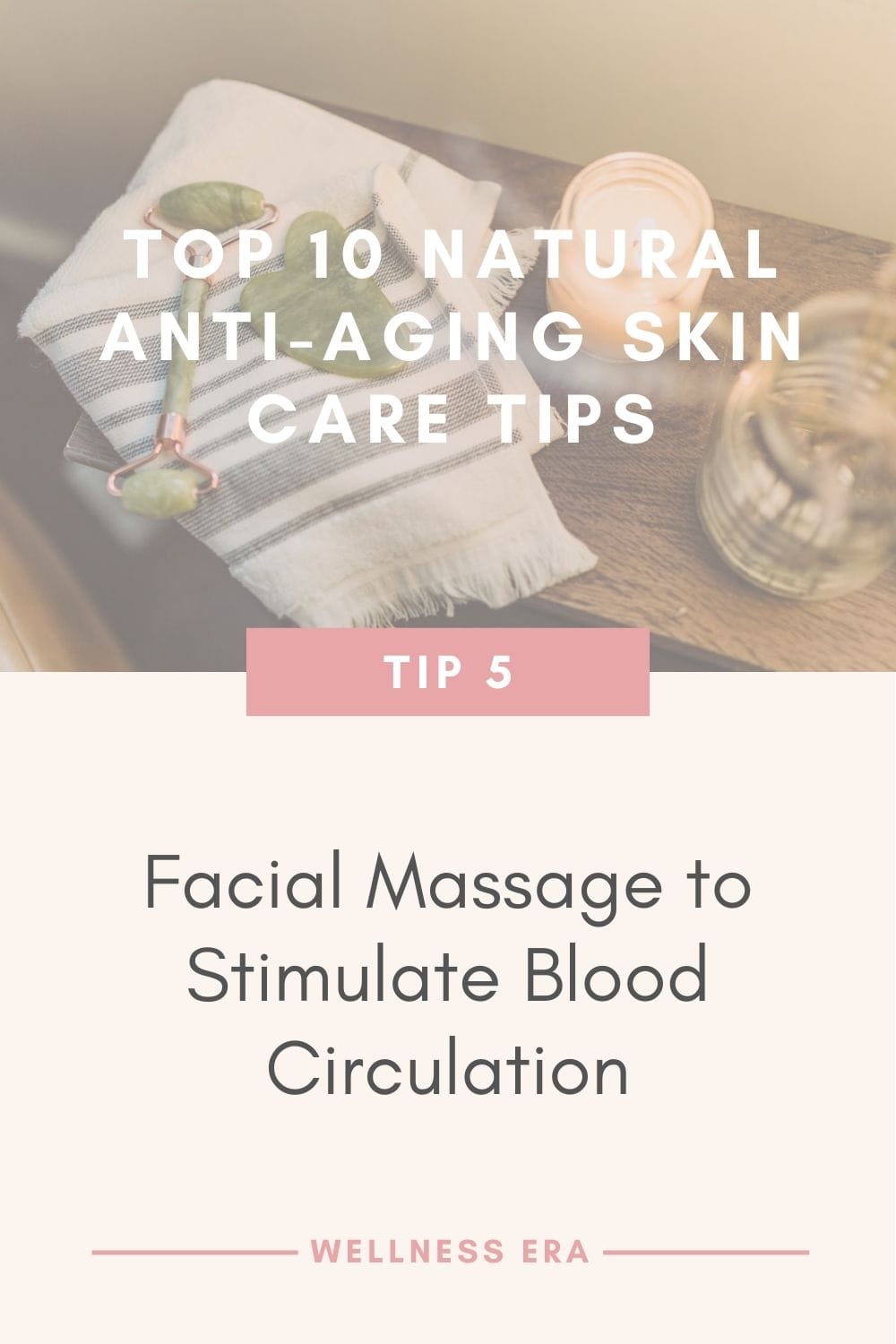
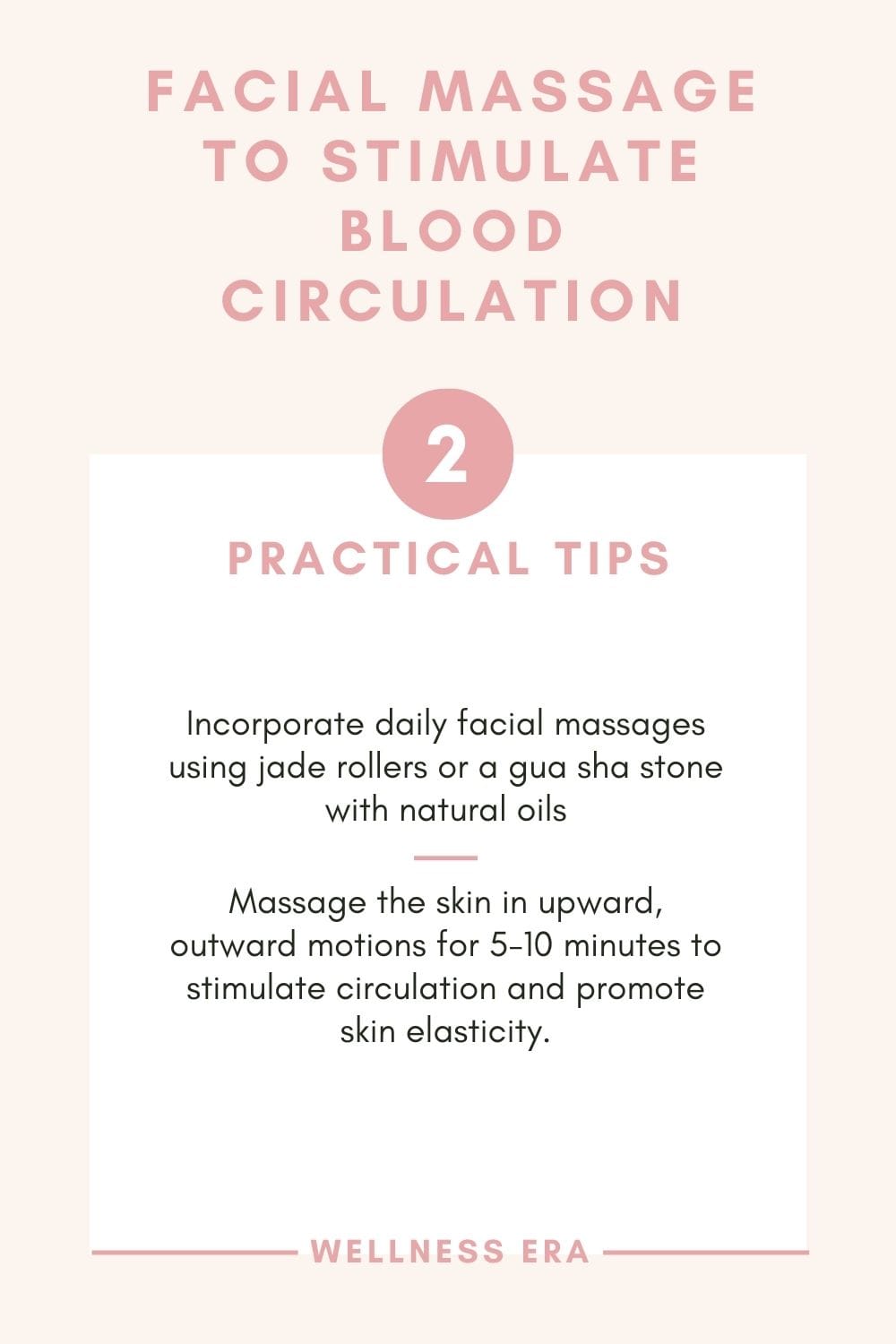
Practical Tip: Incorporate daily facial massages using jade rollers or a gua sha stone with natural oils. Massage the skin in upward, outward motions for 5-10 minutes to stimulate circulation and promote skin elasticity.
A healthy glow starts with proper blood flow! Boosting circulation not only nourishes your skin with oxygen and nutrients but also helps reduce dullness and fine lines. Learn how simple techniques like facial massage, dry brushing, and herbal remedies can naturally enhance your skin’s radiance in this blog article to improving blood circulation for a healthy glow!
6. Wear a Protective Hat for Sun Protection
The sun is essential for maintaining healthy, youthful-looking skin, primarily through its role in vitamin D synthesis. Vitamin D supports skin cell growth, repair, and metabolism, helping to reduce inflammation and promoting overall skin health (Bikle, 2014). Additionally, moderate sun exposure boosts serotonin levels, which can improve mood and reduce stress—a factor that indirectly contributes to reducing signs of aging, as chronic stress can accelerate the breakdown of collagen and elastin (Holick, 2004).
However, too much sun exposure can be harmful, especially due to the damaging effects of UV radiation. Prolonged exposure to UV rays leads to photoaging, which results in the degradation of collagen and elastin, causing wrinkles, fine lines, and sagging (Ganceviciene et al., 2012). To protect your skin from this damage, wearing protective clothing such as a hat is crucial. A hat provides an easy and effective barrier against UV rays, especially during peak sun hours, and helps prevent squinting and frowning, which can contribute to the development of fine lines around the eyes and forehead.
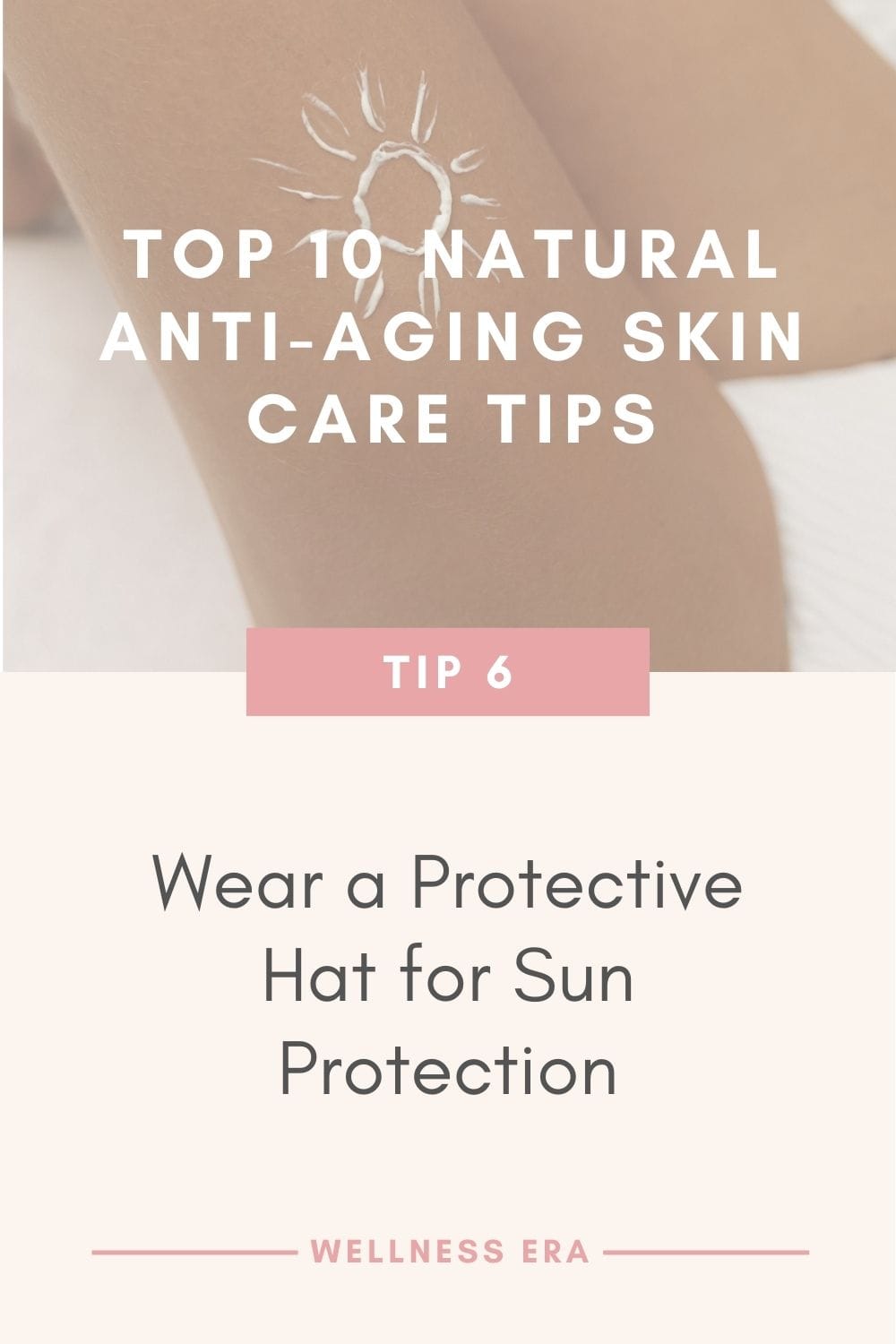
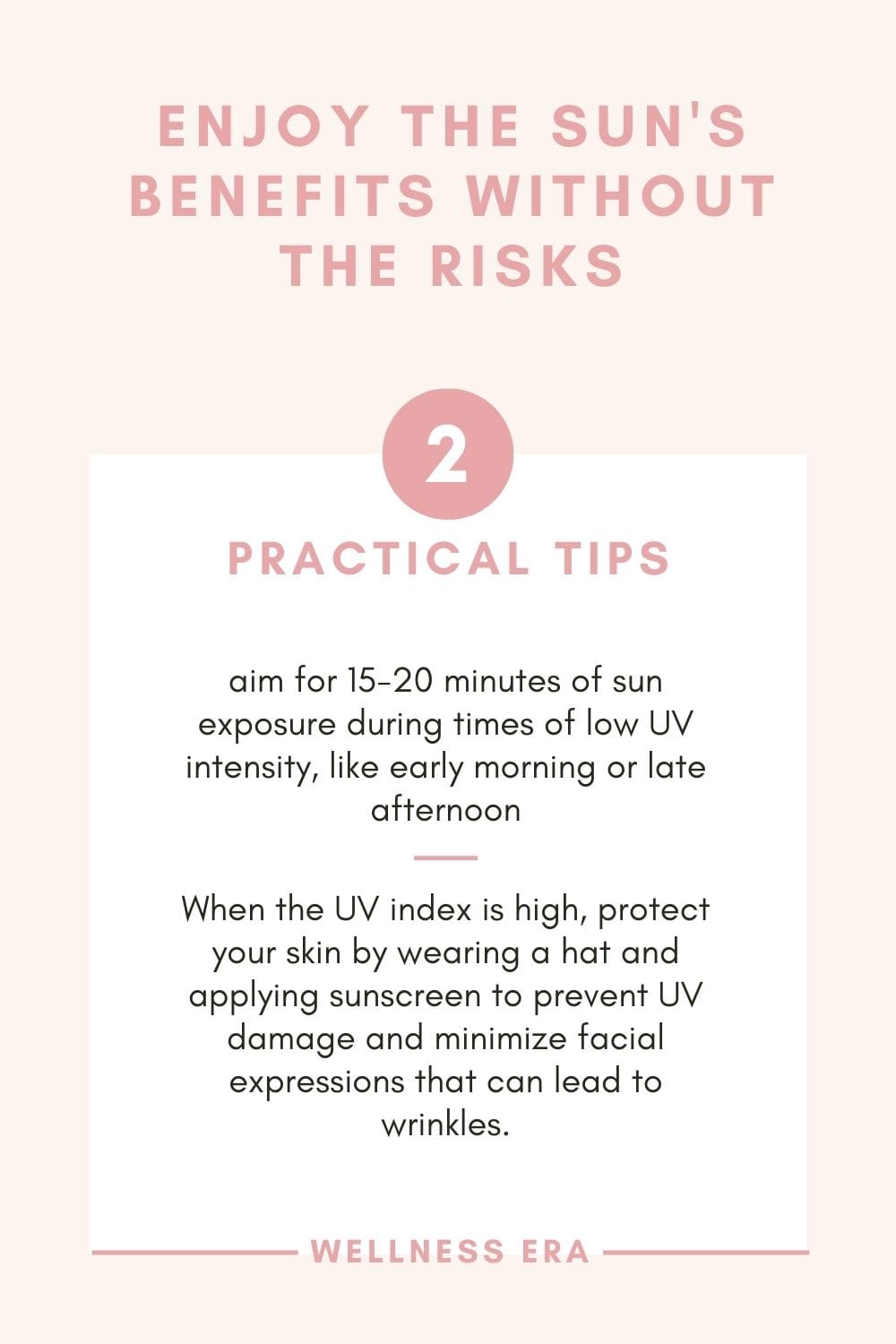
Practical Tip: To enjoy the sun's benefits without the risks, aim for 15-20 minutes of sun exposure during times of low UV intensity, like early morning or late afternoon. When the UV index is high, protect your skin by wearing a hat and applying sunscreen to prevent UV damage and minimize facial expressions that can lead to wrinkles.
Protecting your skin from the sun and environmental damage is essential for maintaining a youthful, healthy glow. Learn how natural sunscreens, antioxidant-rich oils, and simple lifestyle tips can shield your skin in this article about protecting your skin from UV radiation and environmental damage naturally!
7. Stay Hydrated for Plump, Moisturized Skin
Proper hydration is essential for maintaining plump, youthful skin. It helps preserve collagen and maintain skin elasticity, preventing the formation of fine lines and sagging. Hydrated skin is also better at regulating its moisture barrier, which helps prevent dryness and irritation (Purnamawati et al., 2017). However, simply drinking water may not be enough—electrolytes and minerals are necessary for the body to properly retain hydration and ensure the skin stays supple and elastic.
Natural sources of electrolytes, like coconut water, are particularly beneficial. Coconut water is rich in potassium, magnesium, and sodium, all of which play a role in maintaining proper hydration levels in the skin by balancing fluids and improving blood flow (Kalman et al., 2012). These minerals help reduce inflammation and ensure that nutrients are delivered efficiently to skin cells, promoting a healthy, radiant complexion.
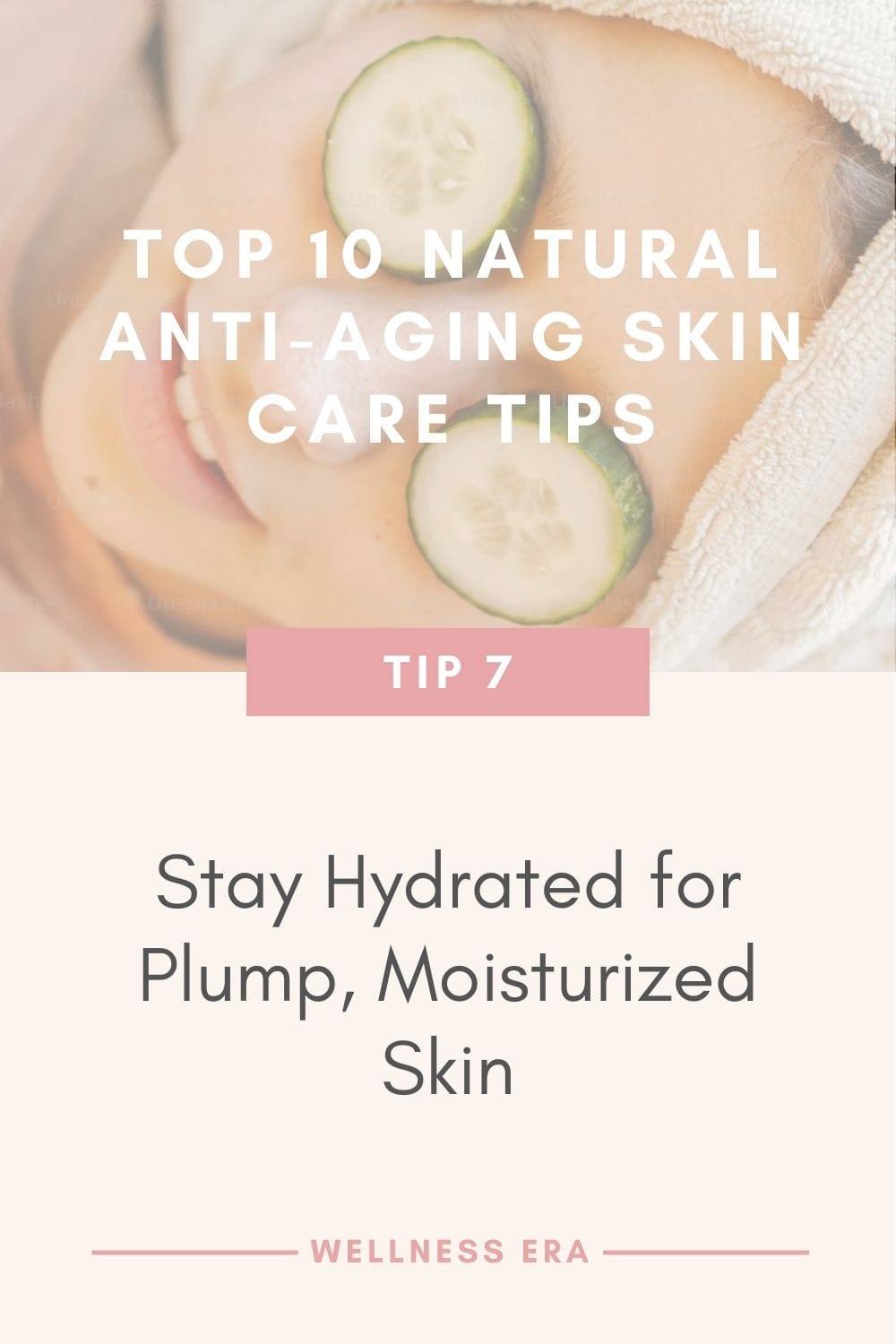
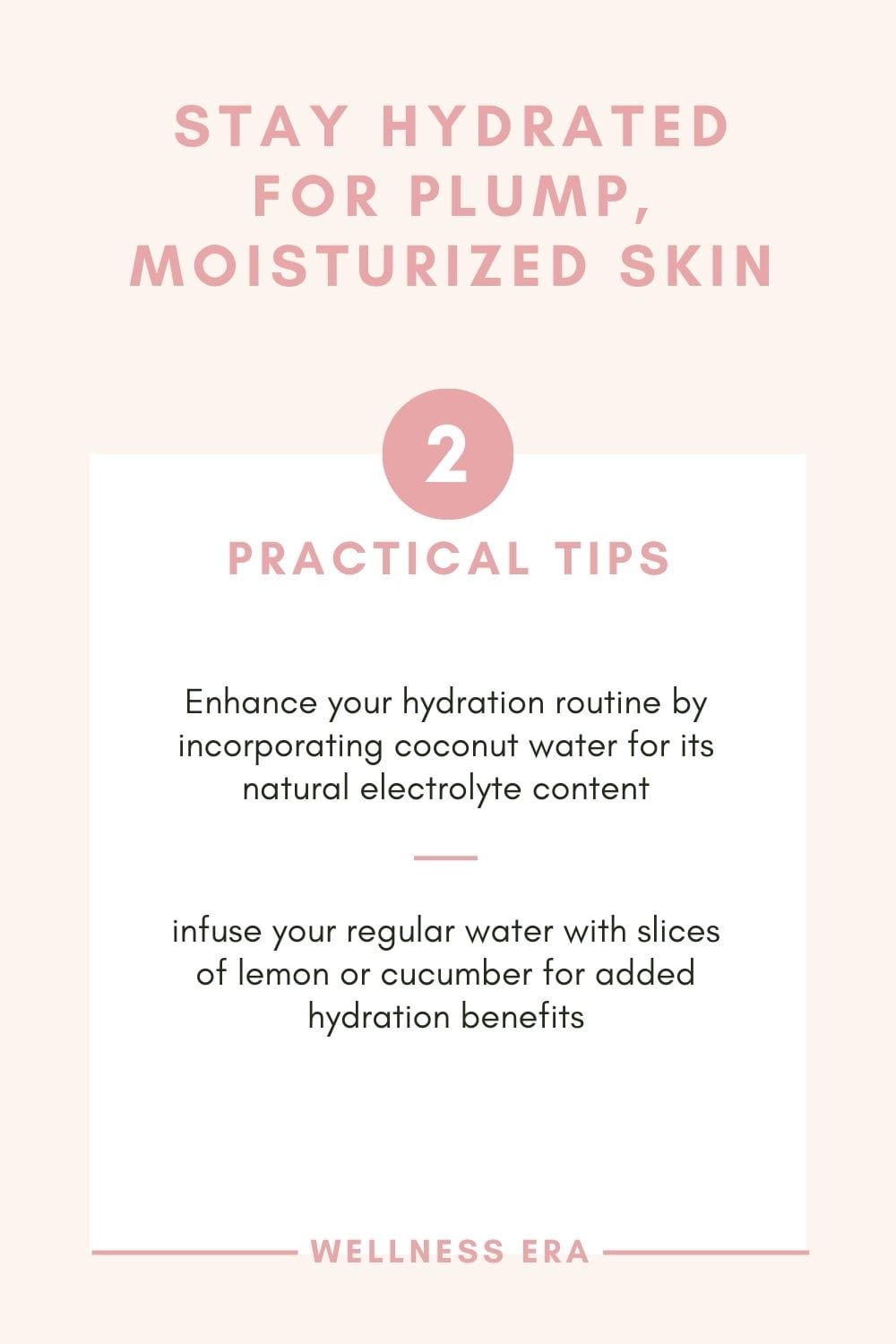
Practical Tip: Enhance your hydration routine by incorporating coconut water for its natural electrolyte content. You can also infuse your regular water with slices of lemon or cucumber for added hydration benefits, helping to keep your skin moisturized and firm.
Hydration is the secret to plump, glowing skin, but it’s more than just drinking water! There are plenty of ways to keep your skin deeply nourished and combat dryness. Learn how to hydrate your skin naturally in this guide to 6 steps for hydrating and combating dryness and give your skin the care it craves!
8. Embrace a Healthy Sleep Routine
A healthy sleep routine is essential for maintaining youthful, radiant skin. Sleep is the time when your body repairs and regenerates skin cells, producing collagen to keep your skin firm and elastic. Poor sleep reduces collagen production and blood flow to the skin, leading to wrinkles, dullness, and dryness (Basta et al., 2007). To support skin health, it’s important to prioritize not just the quantity but also the quality of sleep.
A good sleep routine starts with consistency—going to bed and waking up at the same time every day. This helps regulate your circadian rhythm, ensuring deeper, more restorative sleep. Creating a sleep-friendly environment is also key: keep your bedroom cool, dark, and quiet to encourage melatonin production and improve sleep quality (Cajochen et al., 2011). Avoid blue light exposure from screens at least an hour before bed, as it can disrupt your ability to fall asleep.
A relaxing bedtime routine can further enhance sleep. Activities like reading, meditating, or taking a warm bath help lower cortisol levels, reducing stress and allowing your skin to repair more effectively (Irwin, 2015).
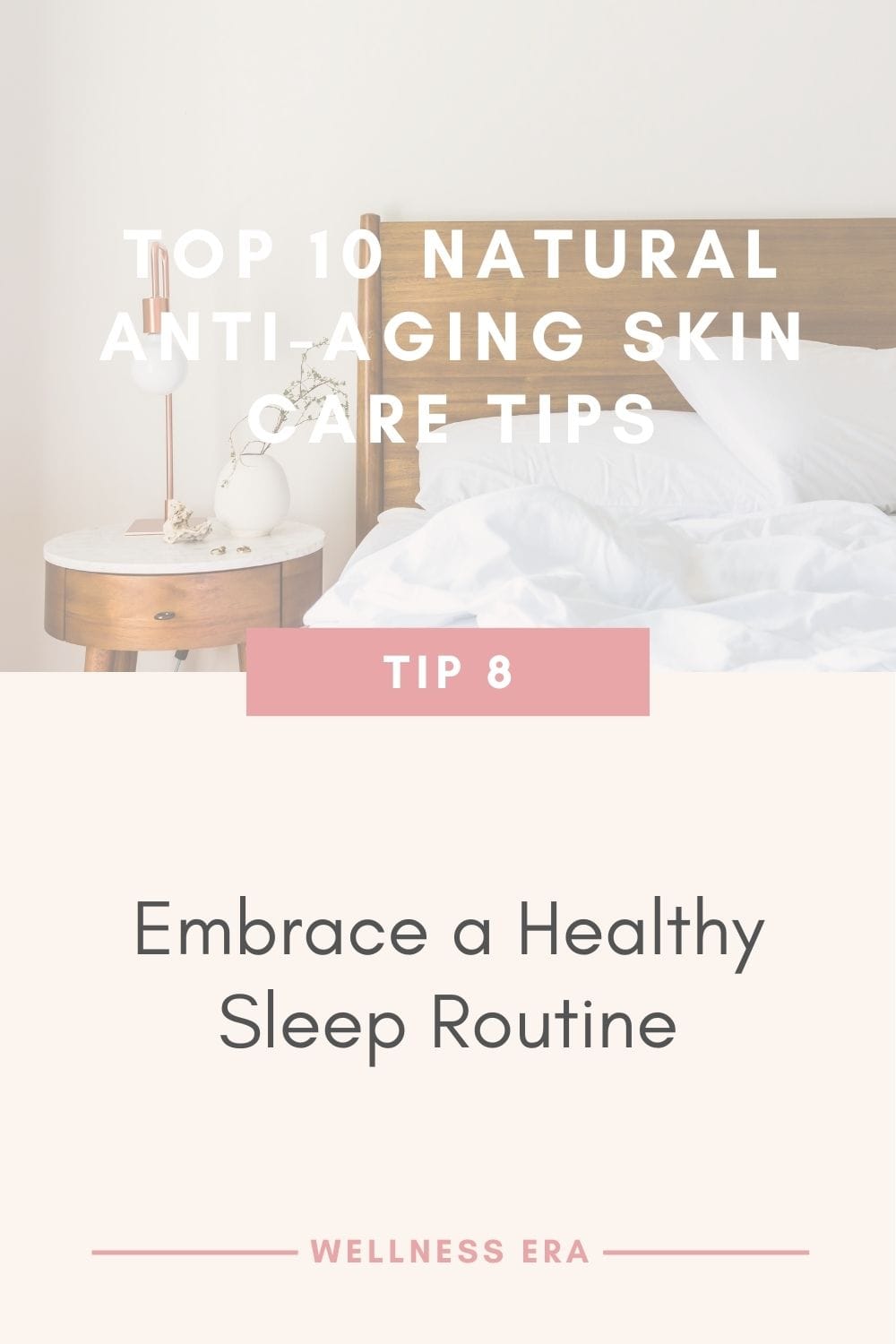
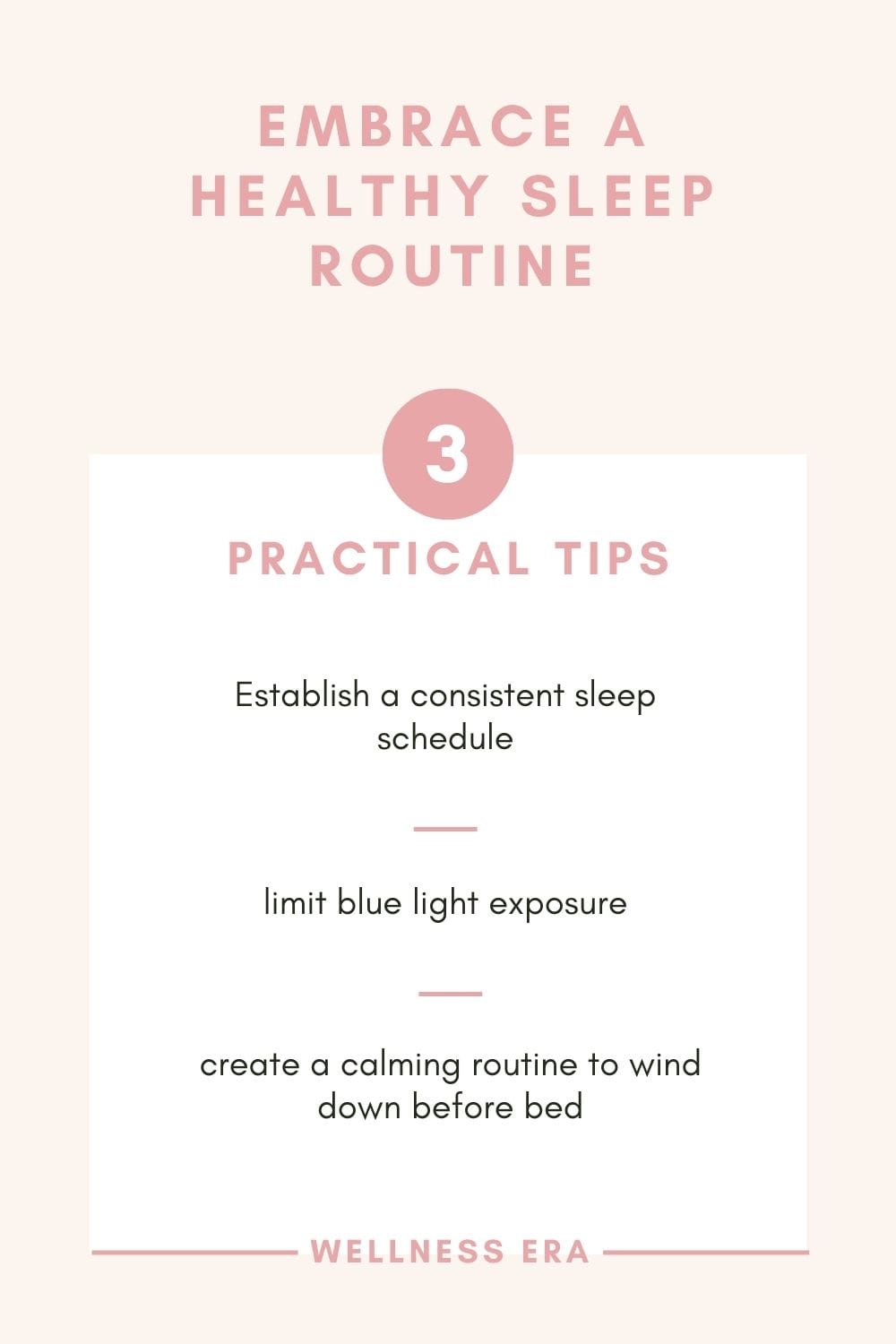
Practical Tip: Establish a consistent sleep schedule, limit blue light exposure, and create a calming routine to wind down before bed. This will improve your sleep quality and allow your skin to regenerate overnight.
Natural, glowing skin starts with quality sleep! When you sleep, your body repairs itself, reducing inflammation, boosting collagen, and giving your skin the time it needs to heal. Discover how restorative sleep can transform your complexion in this blog post about reducing inflammation naturally and wake up to smoother, healthier skin!
9. Practice Yoga, Journaling, or Meditation Daily
Stress is a major factor in skin aging, and finding ways to manage stress is crucial for maintaining a youthful appearance. When stress levels are high, the body produces excessive amounts of cortisol, which triggers inflammation and collagen breakdown (Kiecolt-Glaser et al., 2010). Over time, this can lead to wrinkles, sagging skin, and even flare-ups of skin conditions like acne and eczema.
Activities like yoga, journaling, and meditation are powerful tools for reducing stress and improving skin health. Yogacombines movement and breathwork, improving blood circulation and promoting oxygen flow to the skin, which helps maintain its glow and elasticity. Studies have shown that meditation lowers cortisol levels and reduces inflammation, which can significantly improve the appearance of the skin by allowing it to repair and regenerate more effectively (Carlson et al., 2007).
Journaling can be a way to manage and release stress, giving your mind clarity and helping you feel more grounded. Taking time for daily reflection can help lower stress and its visible effects on the skin.
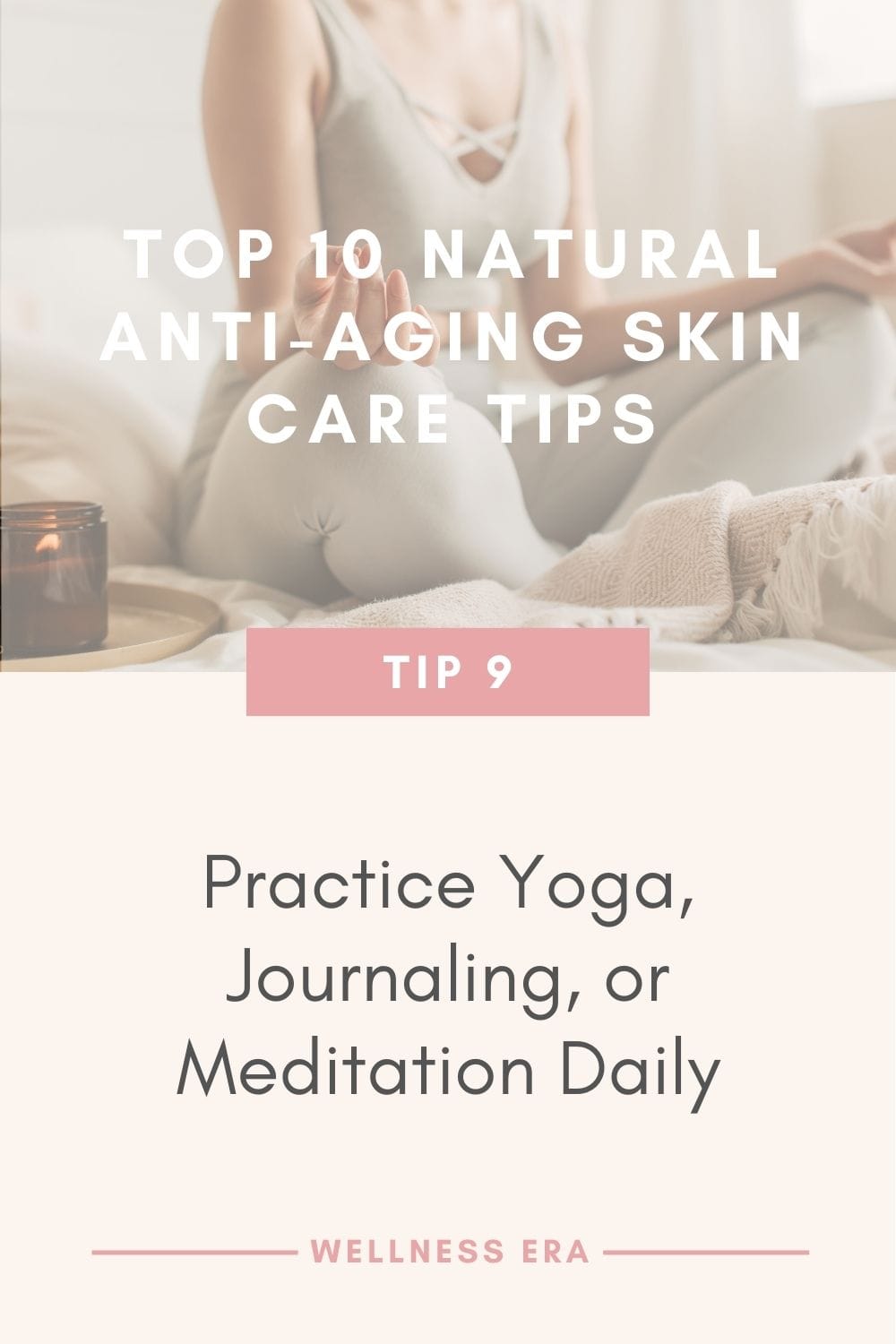
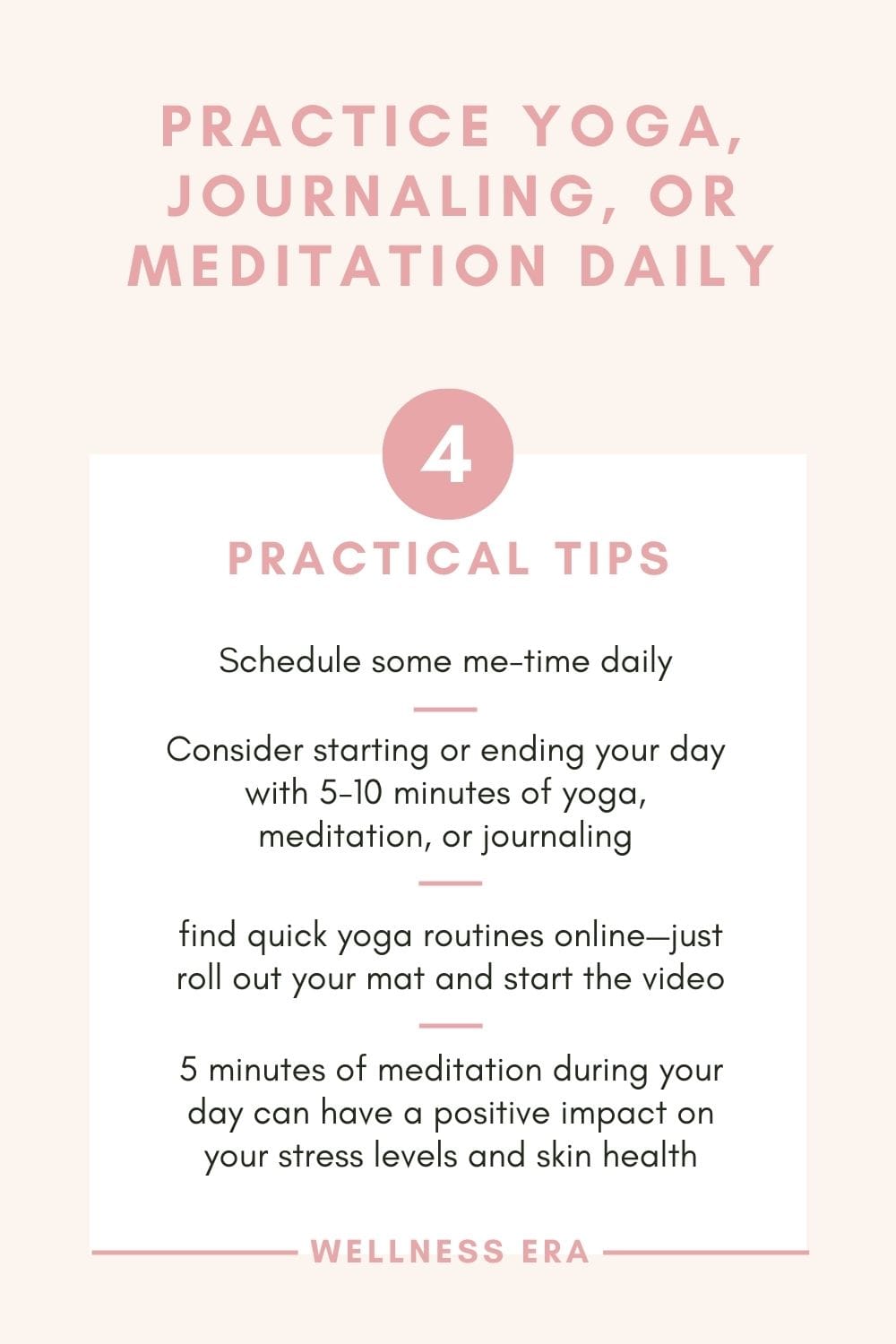
Practical Tip: Schedule some me-time daily. Consider starting or ending your day with 5-10 minutes of yoga, meditation, or journaling. You can easily find quick yoga routines online—just roll out your mat and start the video! Even 5 minutes of meditation during your day can have a positive impact on your stress levels and skin health.
10. Face Ice Baths for Skin Rejuvenation
Cold therapy is a simple yet effective way to rejuvenate aging skin. Regularly exposing the skin to cold, such as through ice baths or cold compresses, helps reduce inflammation, improve circulation, and support the skin’s moisture barrier. Cold temperatures cause blood vessels to constrict, which reduces redness and puffiness. Once the skin warms up, blood flow increases, bringing essential nutrients and oxygen to the skin cells, promoting repair and regeneration (Lee et al., 2014).
For aging skin, this boost in circulation helps stimulate collagen production, which can reduce the appearance of wrinkles and improve skin elasticity. Cold exposure also helps tighten pores, reduce swelling, and calm inflamed areas, making it an excellent remedy for puffy or tired-looking skin (Andersson et al., 2005).
How to Do Facial Ice Baths for Aging Skin:
Fill a bowl with cold water and ice cubes.
Submerge your face in the water for about 10-15 seconds.
Repeat the process for a total of 5-10 minutes, a few times a week.
Alternatively, use a cold compress or ice roller on your face after cleansing. This method helps stimulate blood flow, improve skin tone, and give your complexion a fresh glow.
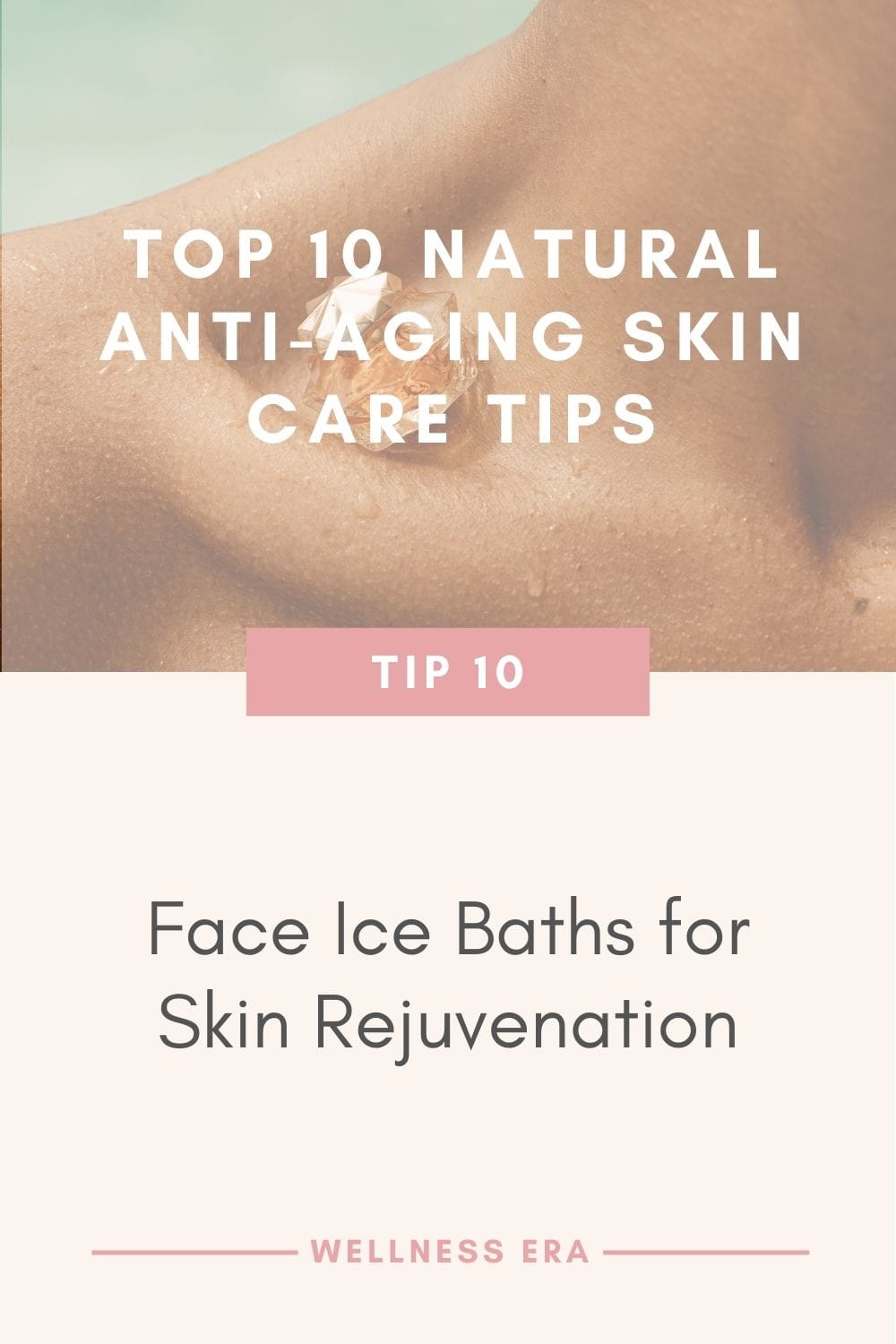
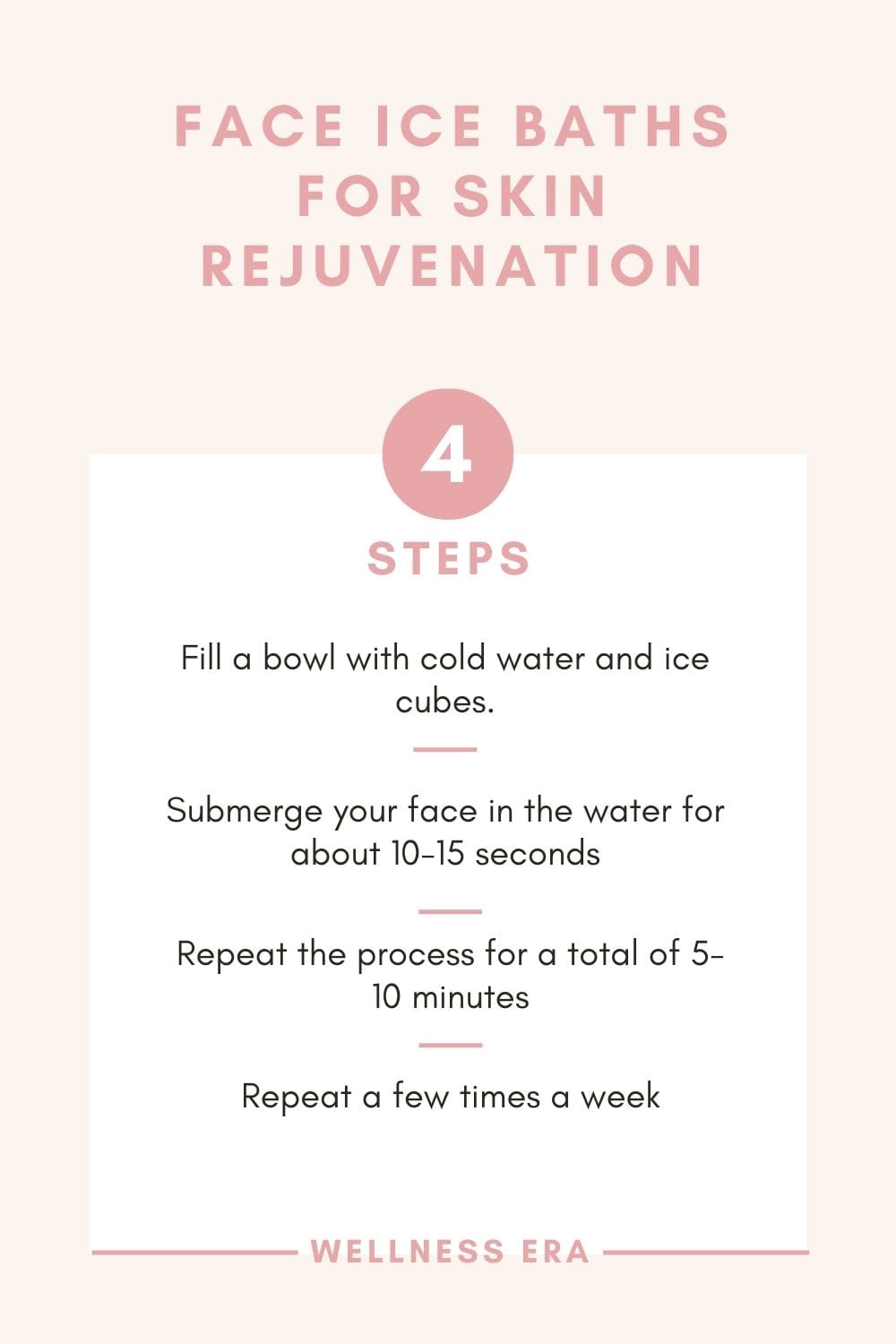
Practical Tip: Use facial ice baths or cold compresses for 5-10 minutes, a few times a week, to reduce puffiness and improve skin circulation. If ice baths feel too intense, try applying a cold washcloth to your face for similar benefits.
References
Andersson, J., Lindqvist, P., Sundberg, M., & Johansson, J. (2005). Effect of cold therapy on blood flow and recovery in soft tissue. Sports Medicine Review, 34(2), 67-74.
Basta, M., Chrousos, G. P., Vela-Bueno, A., & Vgontzas, A. N. (2007). Chronic insomnia and the stress system. Sleep Medicine Clinics, 2(2), 279-291. (URL: ScienceDirect)
Bikle, D. D. (2014). Vitamin D metabolism, mechanism of action, and clinical applications. Chemistry & Biology, 21(3), 319-329. (URL: PubMed)
Boucetta, K., Charrouf, Z., Aguenaou, H., Derouiche, A., & Bensouda, Y. (2014). Argan oil and its impact on human health: A comprehensive review. Asian Pacific Journal of Tropical Biomedicine, 4(11), 986-992. (URL: ScienceDirect)
Cajochen, C., Frey, S., Anders, D., Späti, J., Bues, M., Pross, A., … Stefani, O. (2011). Evening exposure to a light-emitting diodes (LED)-backlit computer screen affects circadian physiology and cognitive performance. Journal of Applied Physiology, 110(5), 1432-1438. (URL: PubMed)
Carlson, L. E., Speca, M., Faris, P., & Patel, K. D. (2007). One year pre–post intervention follow-up of psychological, immune, endocrine, and blood pressure outcomes of mindfulness-based stress reduction (MBSR) in breast and prostate cancer outpatients. Brain, Behavior, and Immunity, 21(8), 1038-1049. (URL: ScienceDirect)
Dayan, S. H. (2017). The facial lymphatic system: Key to understanding how injectables work and their impact. Plastic and Reconstructive Surgery, 139(3), 643e-650e.
Darand, M., & Nikfar, S. (2016). Effects of dark chocolate consumption on skin: The role of flavonoids. Journal of Cosmetic Dermatology, 15(4), 466-473. (URL: Wiley Online Library)
Draelos, Z. D. (2012). The science behind skin care: Moisturizers and their role in anti-aging. Dermatologic Clinics, 30(1), 1-9. (URL: ScienceDirect)
Faria-Silva, C., Ascenso, A., Costa, A. M., Marto, J., Gonçalves, L., & Oliveira, M. (2020). A systematic review on the use of essential fatty acids and antioxidants in the prevention of skin aging. Clinical, Cosmetic and Investigational Dermatology, 13, 319-326.
Ganceviciene, R., Liakou, A. I., Theodoridis, A., Makrantonaki, E., & Zouboulis, C. C. (2012). Skin anti-aging strategies. Dermato-endocrinology, 4(3), 308-319. (URL: PubMed)
Holick, M. F. (2004). Sunlight and vitamin D for bone health and prevention of autoimmune diseases, cancers, and cardiovascular disease. The American Journal of Clinical Nutrition, 80(6), 1678S-1688S. (URL: PubMed)
Irwin, M. R. (2015). Why sleep is important for health: A psychoneuroimmunology perspective. Annual Review of Psychology, 66, 143-172. (URL: PubMed Central)
Kalman, D. S., Feldman, S., Krieger, D. R., & Bloomer, R. J. (2012). Comparison of coconut water and a carbohydrate-electrolyte sport drink on measures of hydration and physical performance in exercise-trained men. Journal of the International Society of Sports Nutrition, 9(1), 1. (URL: Biomed Central)
Kiecolt-Glaser, J. K., McGuire, L., Robles, T. F., & Glaser, R. (2002). Psychoneuroimmunology and psychosomatic medicine: Back to the future. Psychosomatic Medicine, 64(1), 15-28. (URL: Europe PMC)
Kong, J. S., & Park, S. N. (2019). Development of cosmetic exfoliants based on alpha hydroxy acids with improved keratin solubilization activity. Journal of Cosmetic Science, 70(1), 15-30. (URL: Scientific Research)
Lee, J., Hong, J., & Yang, Y. (2014). Cold exposure as a therapeutic option for inflammation-related skin conditions. International Journal of Dermatology, 53(8), 958-964. (URL: Wiley Online Library)
Lin, J. Y., & Lin, W. H. (2005). Antioxidant activity of vitamins and trace elements in human skin. Journal of the American Academy of Dermatology, 52(3), 450-459. (URL: JAAD)
Monteiro, F. A., dos Santos, S. G., Santamarina, A. B., & Cipriano, P. S. (2018). The enzyme papain from Carica papayaand its use in skin care: A review. Journal of Cosmetic Dermatology, 17(6), 990-997. (URL: Wiley Online Library)
Packer, L., & Valacchi, G. (2002). Antioxidants and the skin. Nutrition Reviews, 60(5), 144-151. (URL: PubMed)
Pullar, J. M., Carr, A. C., & Vissers, M. C. (2017). The roles of vitamin C in skin health. Nutrients, 9(8), 866. (URL: MDPI)
Purnamawati, S., Indrastuti, N., Danarti, R., & Saefudin, T. (2017). The role of moisturizers in addressing various kinds of dermatitis: A review. Clinical Medicine & Research, 15(3-4), 75-87. (URL: PubMed Central)
Shanbhag, S., Nayak, A., Narayan, R., Nayak, U. Y., & Koteshwara, K. B. (2019). Anti-aging and sunscreen effects of antioxidants: The current status of pharmacological applications. Dermatology and Therapy, 9(2), 241-252. (URL: SpringerLink)
Vespa, M. L., Manissier, P., Humbert, P., Schaafsma, A., & Berardesca, E. (2015). Clinical evaluation of skin benefits of a food supplement containing hydrolyzed collagen, vitamins, and zinc. Journal of Cosmetic Dermatology, 14(4), 291-301. (URL: Wiley Online Library)
Zhao, J., Wang, S., & Liu, F. (2020). The effect of facial massage on blood flow: A systematic review. Clinical Dermatology Research Journal, 9(4), 1-7.
Natural Skin Care for Aging
Aging skin can benefit greatly from incorporating natural remedies into your daily skincare routine. From boosting collagen with vitamin C-rich foods and using natural oils for hydration, to embracing healthy sleep habits and stress management techniques like yoga and meditation, these simple, science-backed strategies can help keep your skin looking youthful and radiant.
The best natural anti-aging tips are those that fit seamlessly into your lifestyle and focus on long-term skin health. By making small, consistent changes—like protecting your skin from the sun, staying hydrated, and practicing facial massage or ice baths—you can naturally slow the aging process and promote glowing, resilient skin.
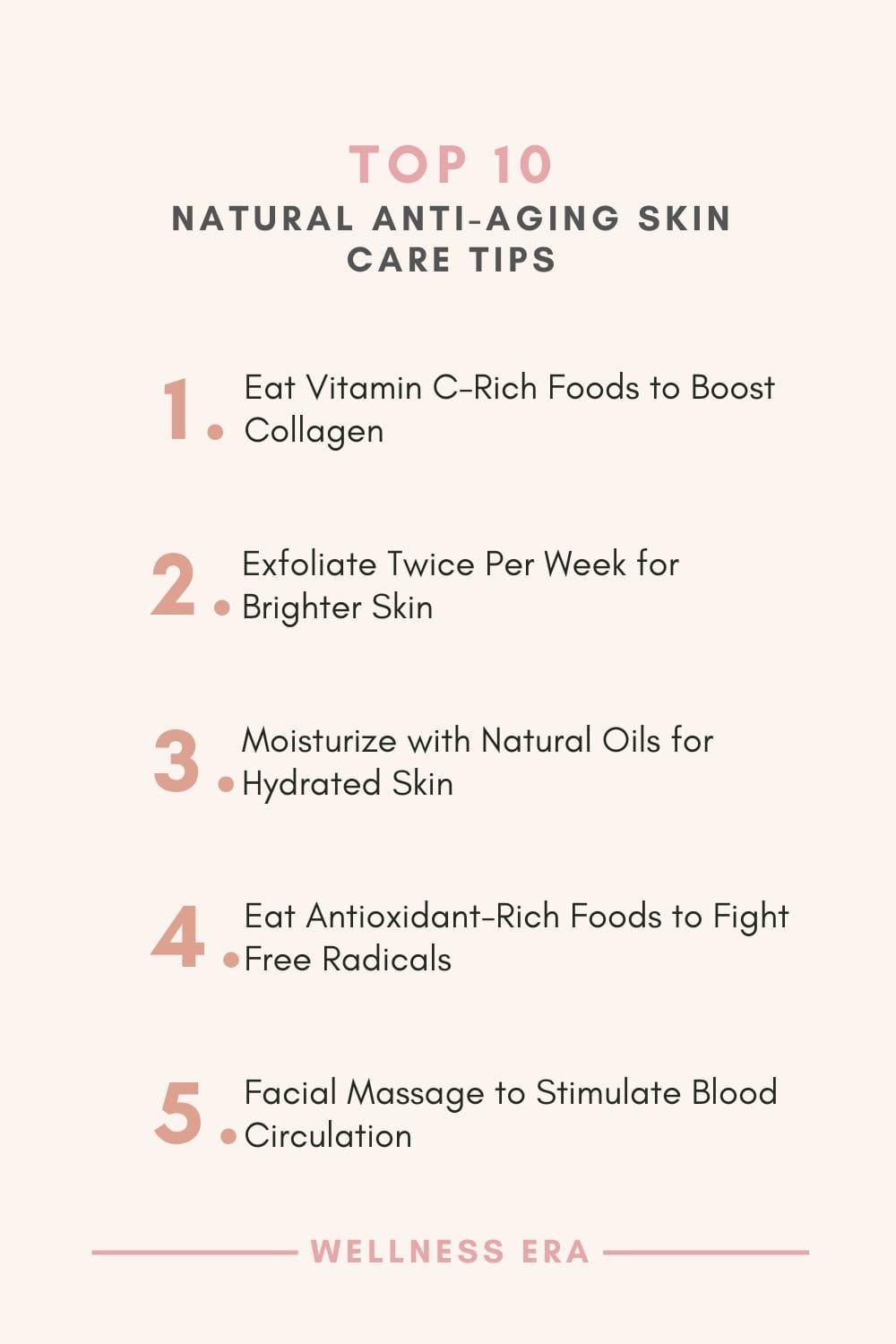
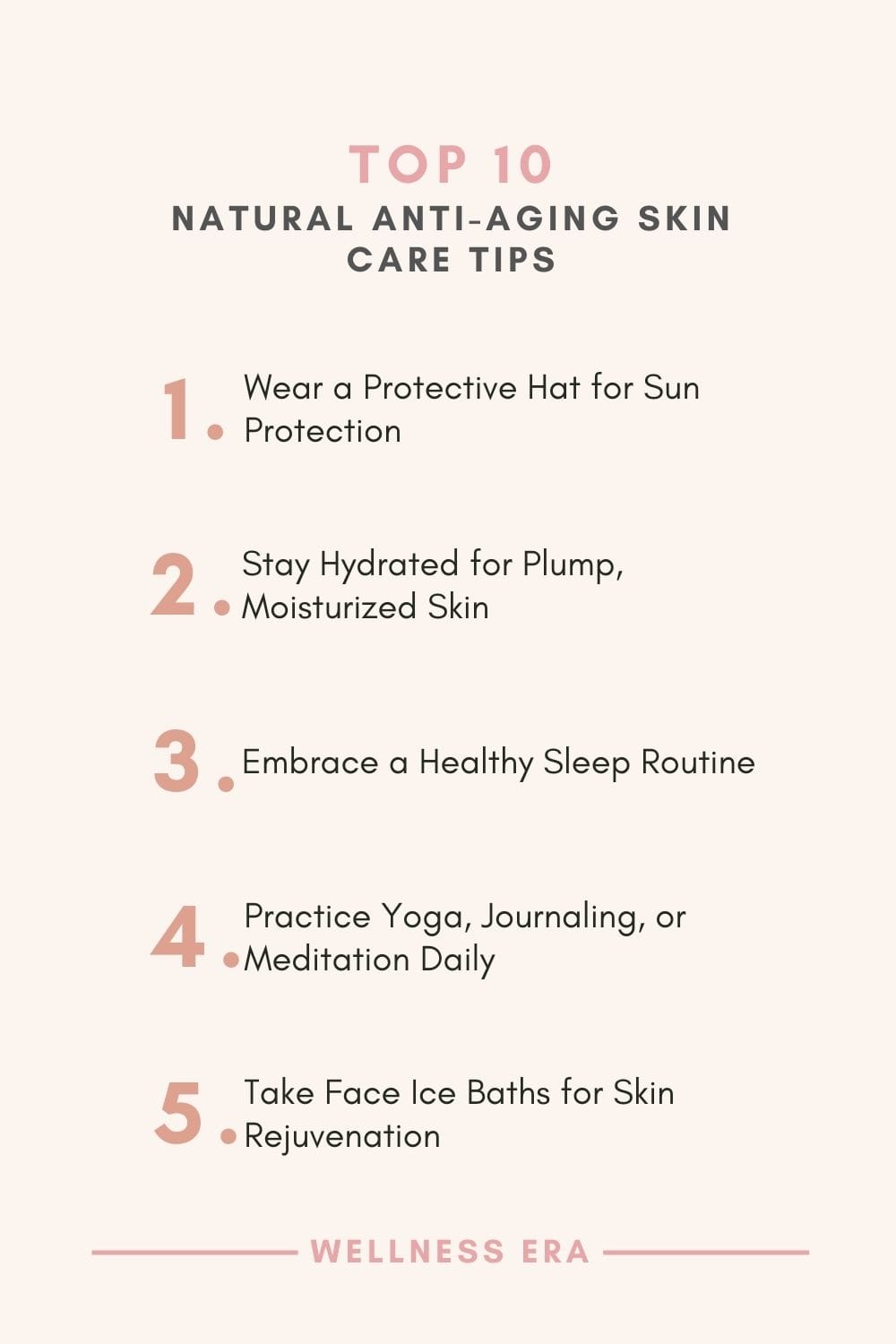
Frequently Asked Questions (FAQ)
What are the best natural anti-aging treatments?
The best treatments include antioxidant-rich foods, natural oils, and cold therapy for reducing inflammation, alongside proper hydration, sun protection, and facial massage.
How can I reduce wrinkles naturally at home?
Incorporate vitamin C-rich foods, natural exfoliants, and hydrating oils into your skincare routine. Regular facial massage and cold compresses can also help reduce the appearance of wrinkles.
Which natural oils are best for aging skin?
Argan, rosehip, jojoba, and pomegranate seed oils are excellent for moisturizing and improving skin elasticity, while also reducing fine lines.
Can you slow down aging naturally?
Yes, by following healthy lifestyle habits like managing stress, getting enough sleep, eating a balanced diet, and protecting your skin from the sun, you can slow the aging process naturally.
What foods reduce wrinkles?
Berries, nuts, fatty fish, and dark leafy greens are rich in antioxidants and healthy fats that help reduce wrinkles by protecting the skin from free radical damage and promoting collagen production.
Here is something you might also like..
Would you like to receive something special?
Try out the best, inspirational weekly newsletter for your natural wellness era!
My Wellness Era Weekly
SUBSCRIBE TO OUR NEWSLETTER
Your Weekly Dose of Natural Wellness
Fill out the form below, and you will reveice "My Wellness Era Weekly" delivered to your inbox.
What you can expect: a short, warm, and personal note from our founder. Mindset shifts, journal prompts, or self-care reminders. Inspiring quotea related to wellness, mindfulness, or self-love. Small, actionable wellness habits you can try. Recomendations we love, are testing, or recently discovered. Highlights of our latest blog posts.
+++ What we’re loving every single week.
QUICK LINKS
SOCIAL
CATEGORIES



